
Special Series With Dr. Punita Kumar Sinha: Big Tech – A force for Good or Bad?
In this episode of ‘Special Series with Dr. Punita Kumar Sinha speaks with Bhaskar Chakravorti, as he delves into the intricacies of Big Tech and its pros and cons.

In this episode of ‘Special Series with Dr. Punita Kumar Sinha speaks with Bhaskar Chakravorti, as he delves into the intricacies of Big Tech and its pros and cons.

Data from Digital Planet’s Digital Intelligence Index (DII) is mentioned in this article about the lack of accessible broadband services in South Sudan.
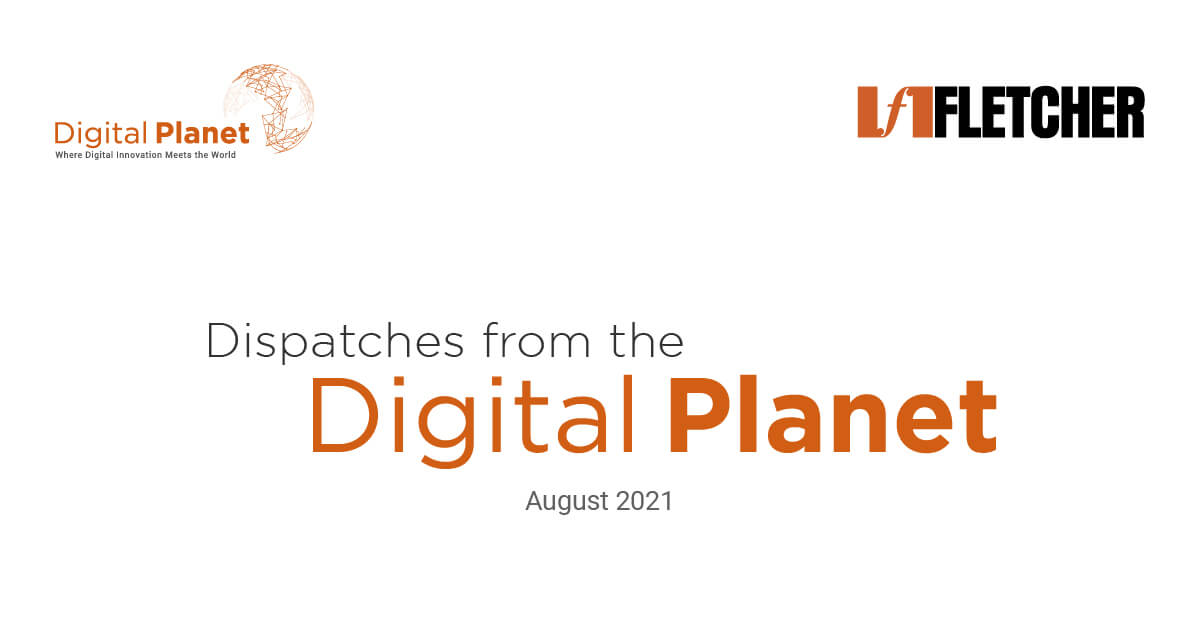
Dispatch from the Digital Planet is a monthly bulletin that talks about new updates in digital innovation across the world and their impact.
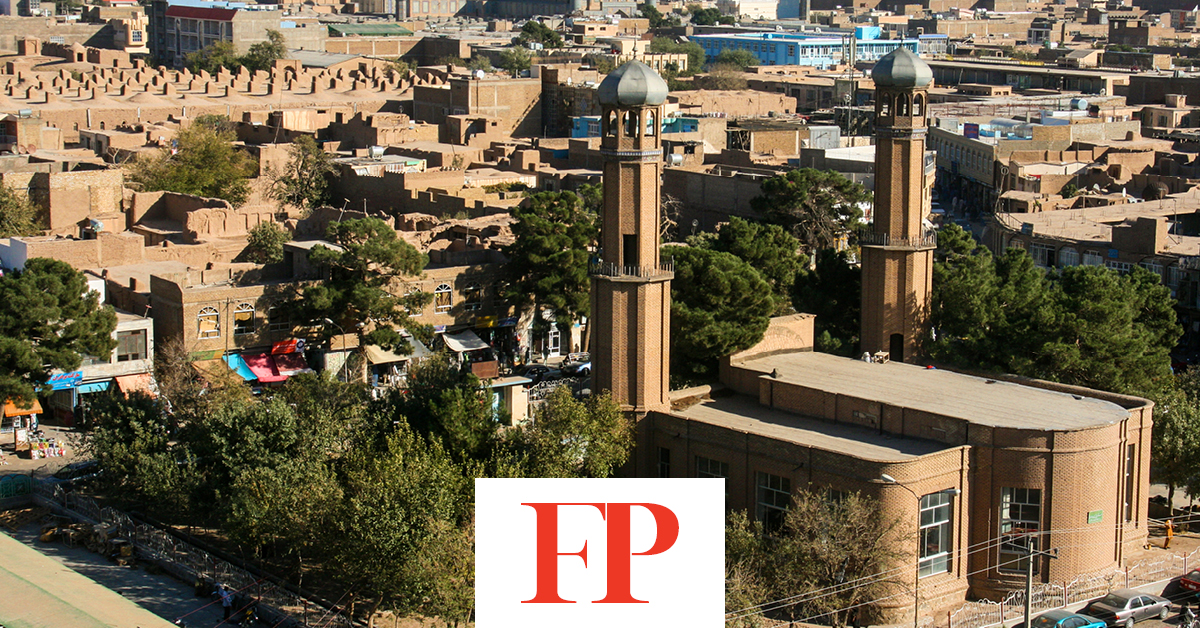
Why the tech giant is on the wrong side of history yet again.

Tech giants ponder giving Taliban social media. Concerns: free speech, harm, Taliban’s image, retaliation, risks. Challenging decisions ahead.

Data about Hong Kong’s ranking on Digital Planet’s Digital Intelligence Index (DII) is featured in this article about tech opportunities in Korea.
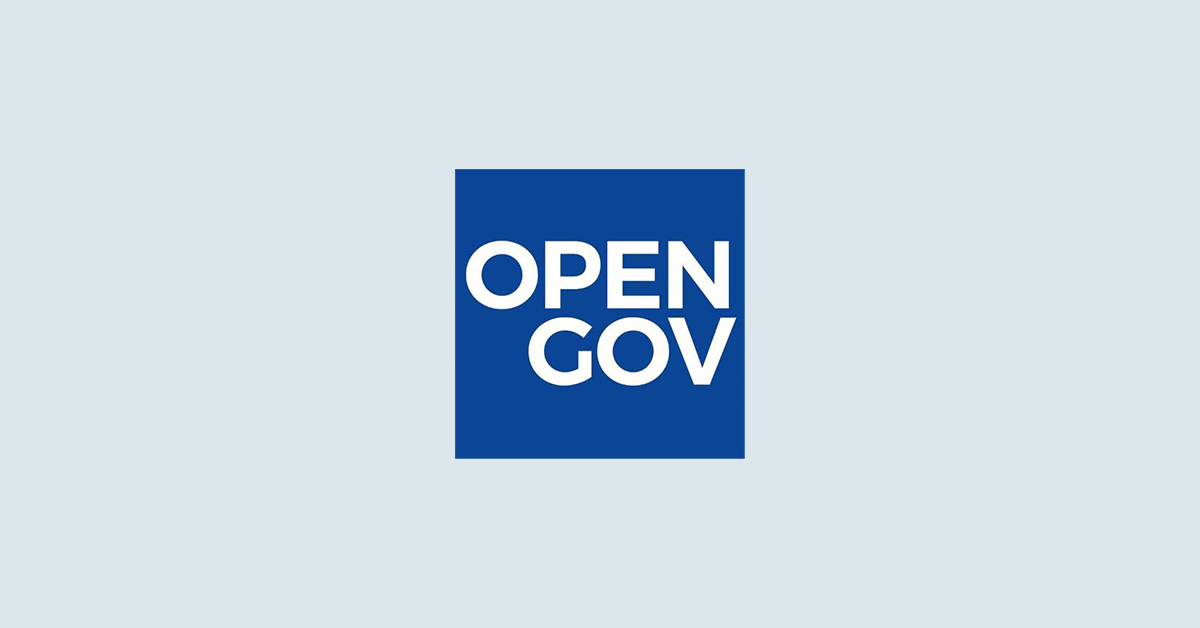
Digital Planet’s Digital Intelligence Index (DII) is mentioned in this article about the development of digital payment technologies in Hong Kong.

Italy’s ranking on Digital Planet’s Digital Intelligence Index is mentioned in this article about the rise of FinTech companies in the country.

A handful of companies have outsize influence on the world’s artificial intelligence. Policymakers must act now to stem the rise of powerful monopolies.

Bhaskar Chakravorti comments on U.S. government antitrust legislation to restrict mergers and acquisitions by dominant Big Tech platforms and the potential impact on smaller start-ups.

Bhaskar Chakravorti comments on the potential impact of the Federal Trade Commission’s vote this week to rescind a 1995 statement that loosened merger review reporting requirements.
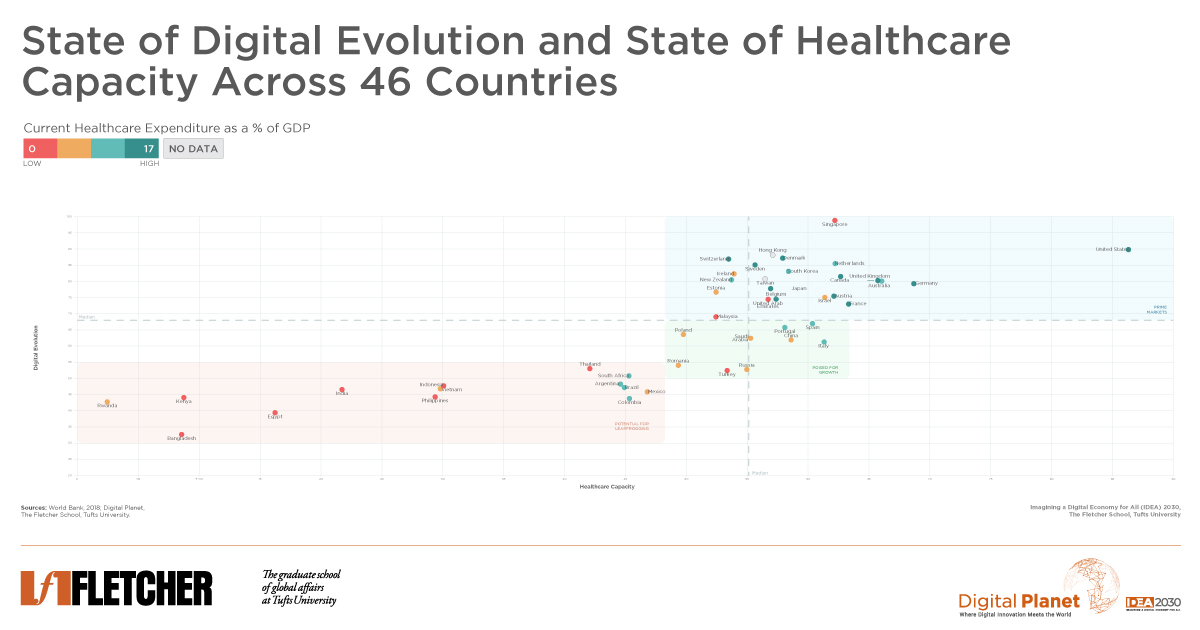
Global healthcare digitization varies wildly. Our study in 46 countries identifies virtualized healthcare opportunities, enabling lagging nations to leapfrog with digital tools for quality care.
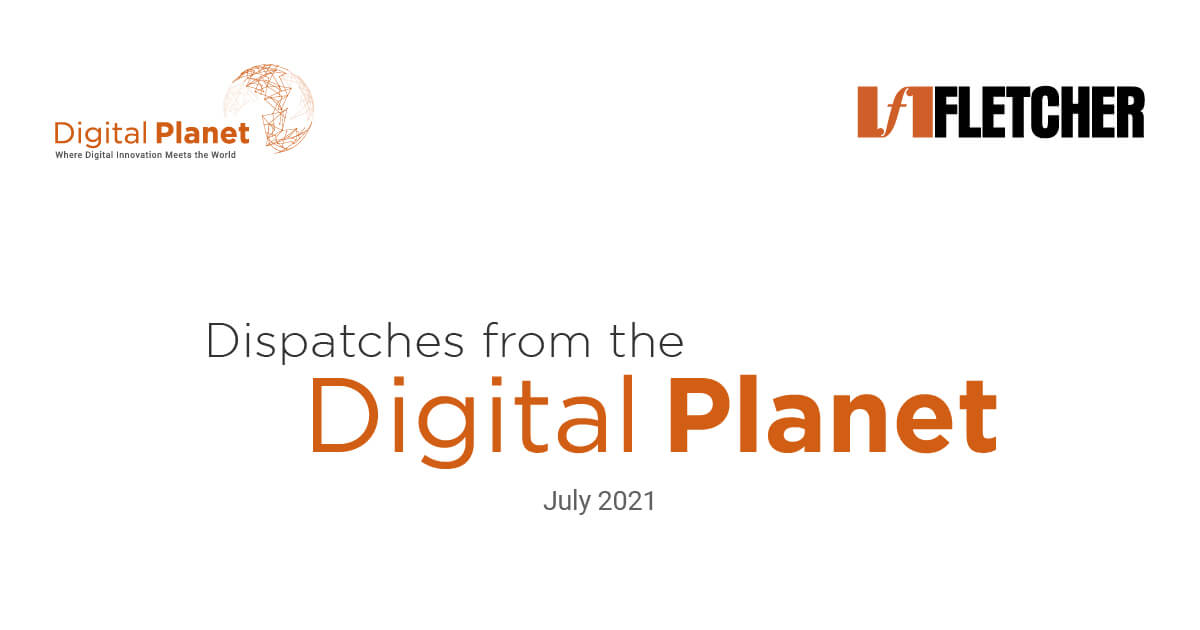
Dispatch from the Digital Planet is a monthly bulletin that talks about new updates in digital innovation across the world and their impact.
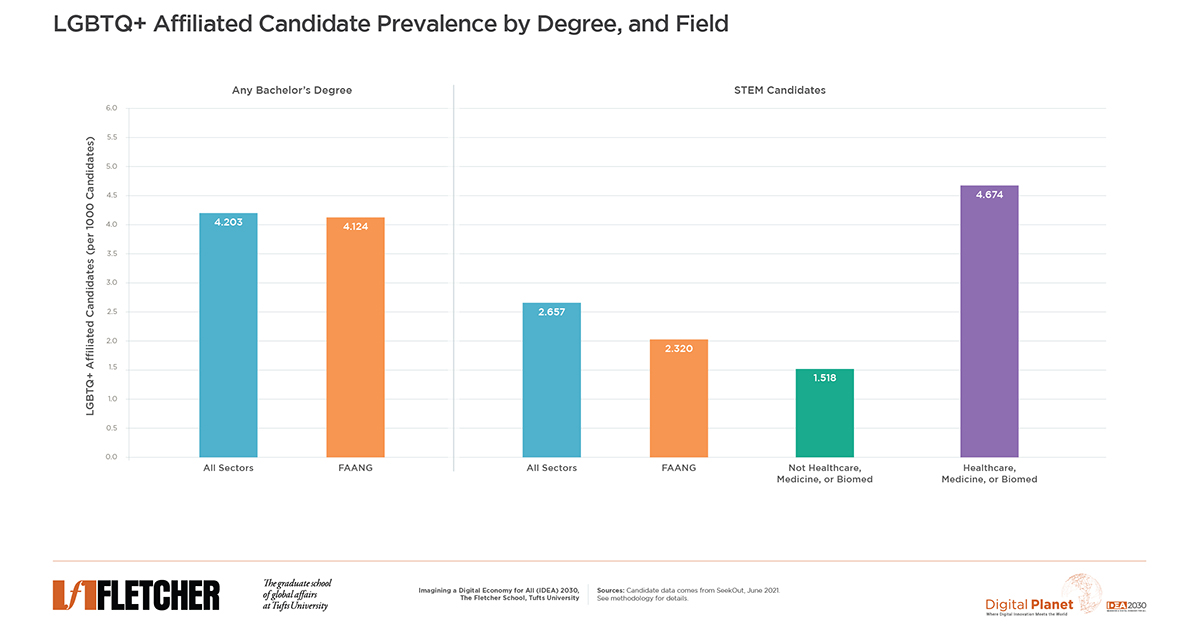
Digital Planet explores LGBTQ+ solidarity in STEM for Pride Month. STEM grads express less LGBTQ+ on resumes. Women in STEM are twice as likely as men to affiliate with the gay community.
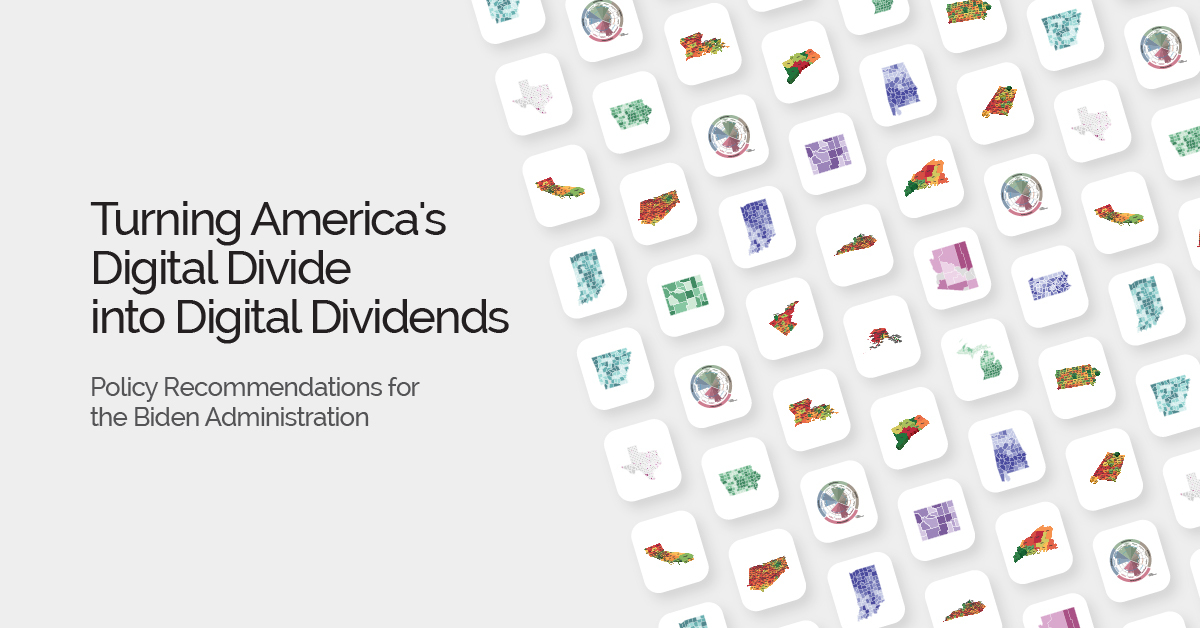
The US digital divide has sparked division. The Biden-Harris administration can bridge gaps, review access, inclusion, institutions, and digital proficiency for transformative change in a recovering economy.

Digital Planet research finds that the number of LGBTQ+ women outnumber LGBTQ+ men in the United States tech industry. The research finds the gap is even wider in major tech hubs, like San Francisco and New York City.

Democrats and Republicans alike need to be honest about how much broadband for all will cost. They can make Big Tech help pay for it.

Experts say the solution is to make remote work the default.
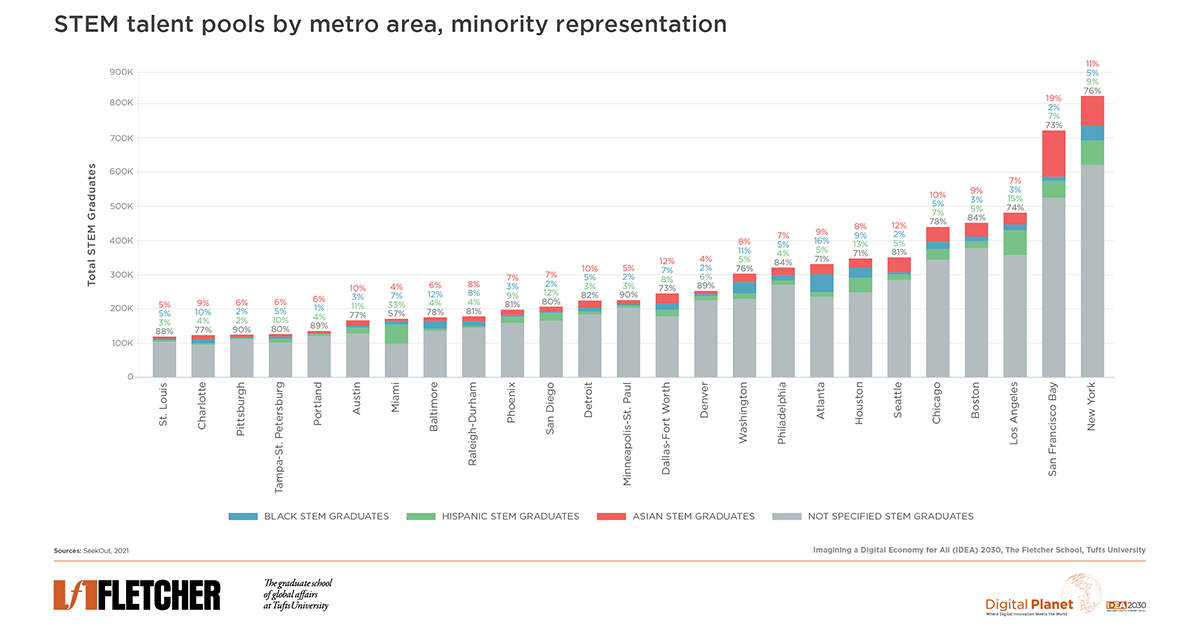
In the evolving work landscape, how can we boost under-represented talent (e.g., Black, Hispanic, female) in high-demand roles? Where can organizations find these diverse pools in major U.S. metro areas?
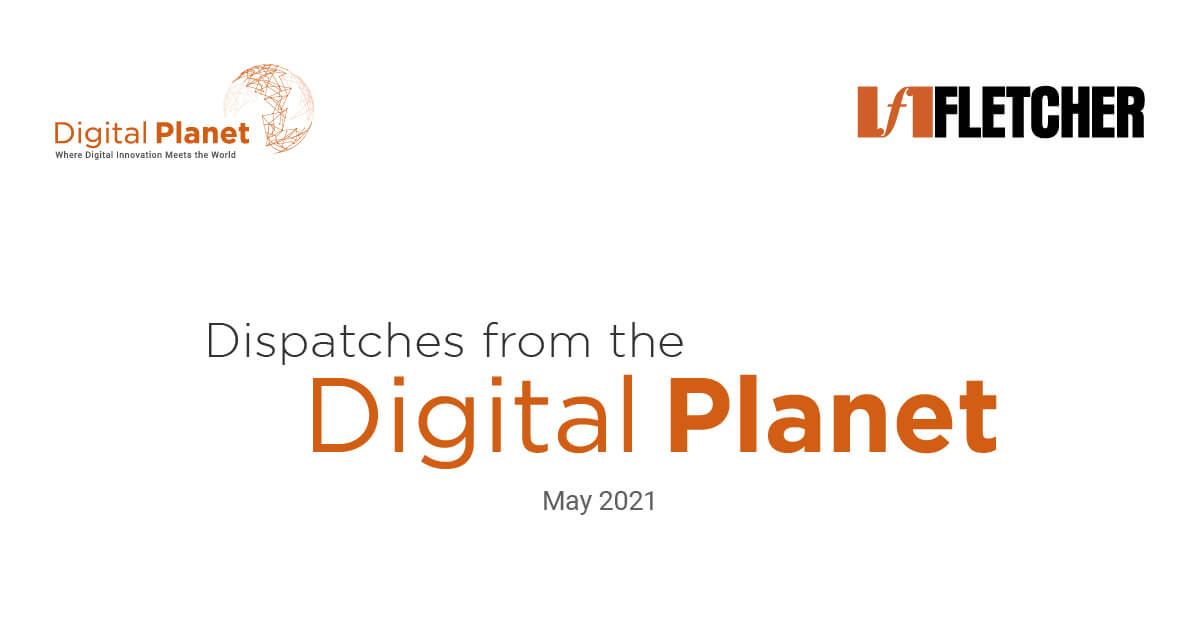
Dispatch from the Digital Planet is a monthly bulletin that talks about new updates in digital innovation across the world and their impact.

Internet access is infrastructure. But fixing the patchy U.S. system is going to take more than $100 billion.

Bhaskar Chakravorti said “Nobody is safe until everyone’s safe,” when asked about the COVID-19 outbreak in India.

For countless Americans, who are now working remotely, there is one key component that makes working anywhere possible: reliable, accessible, high-speed internet.

The final day of the Health and Wealth of America conference focused on the power of data. The pandemic forced companies to take their services virtual, and doing so led to the capture of loads of data that can enhance their businesses, and ultimately society.

Raytheon’s multimillion-dollar investment in a STEM program for students of color is the latest attempt in tech to diversify the field.
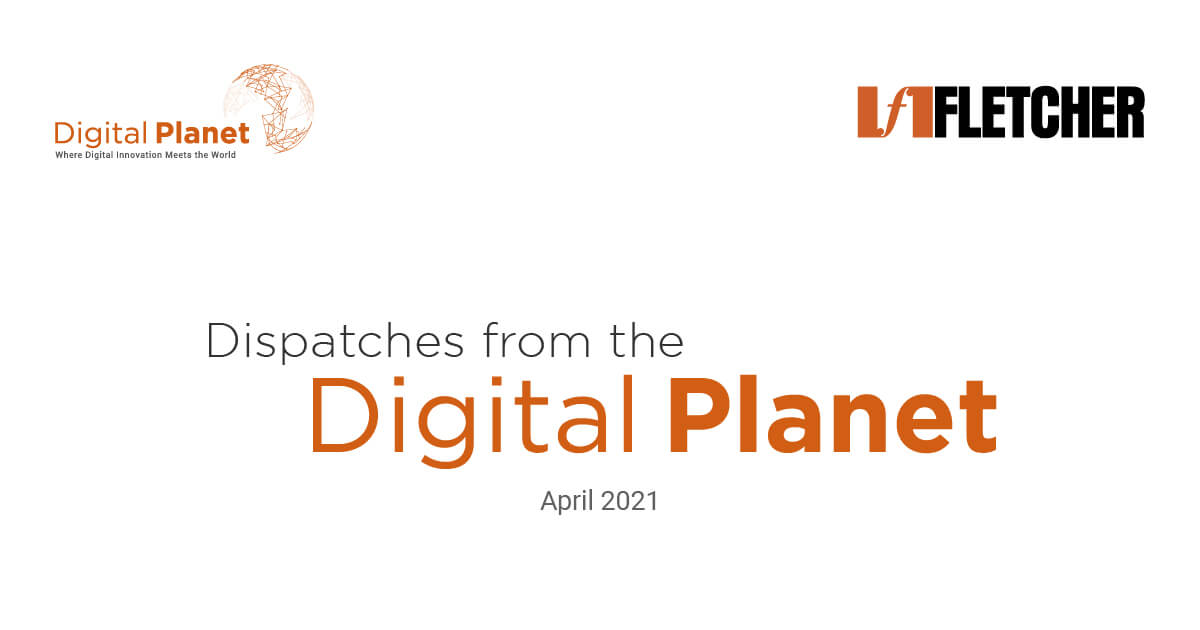
Dispatch from the Digital Planet is a monthly bulletin that talks about new updates in digital innovation across the world and their impact.
Home > IDEA2030 > Turning America’s Digital Divide into Digital Dividends Webinar Recording Watch the full IDEA 2030 webinar from

Protecting privacy and building trust, as well as improving the technology, will be key to success, says Tufts cybersecurity expert and Professor Susan Landau.

Why are we so divided about the true state of the digital divide in America? What steps might the Biden-Harris administration take to clarify the reality of this divide and move toward closing the gap? This webinar examines how these changes can be transformational for a recovering, yet socially distanced economy.

Bhaskar Chakravorti discusses how advancements in technology have helped maintain the global economy and what companies have done to contribute to the widespread adoption of digitally-based services.
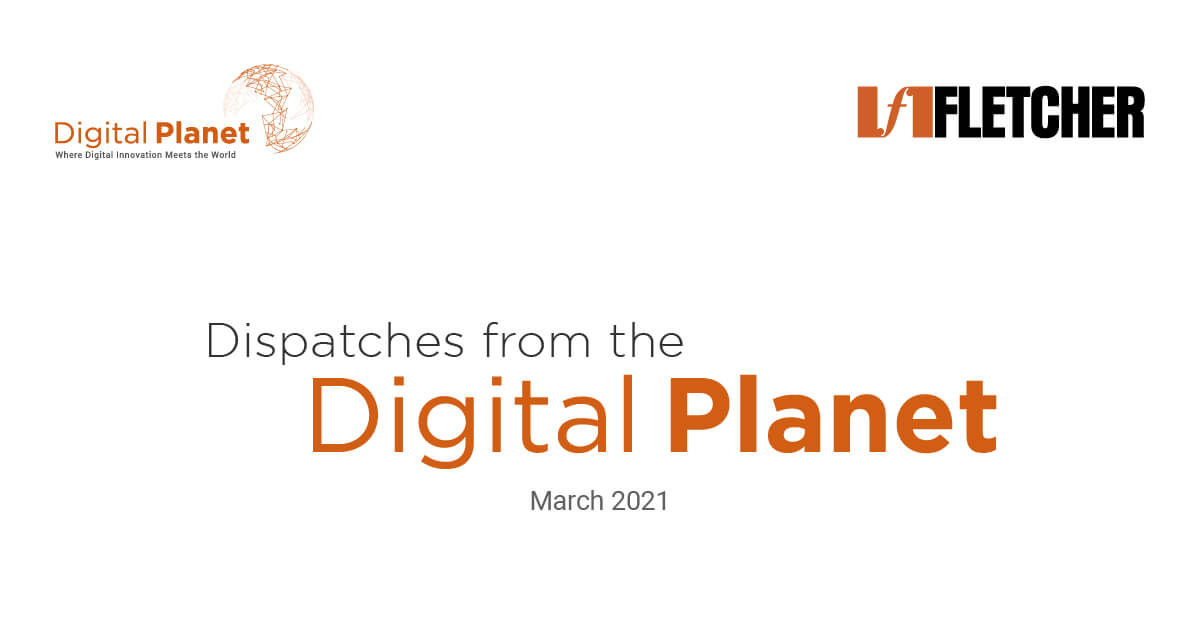
Dispatch from the Digital Planet is a monthly bulletin that talks about new updates in digital innovation across the world and their impact.

Director of Digital Planet Research Ravi Chaturvedi shares an assessment of Reliance Industries’ diversification and investments into technology ventures.
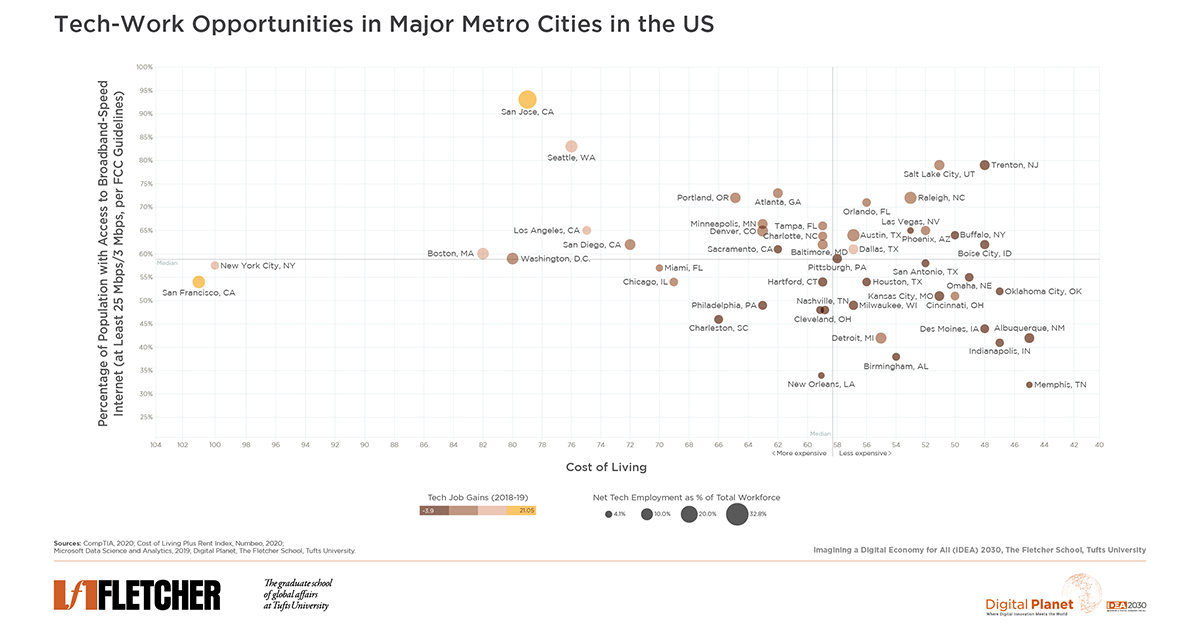
US States expanded telehealth, yet 16 of them face challenges with subpar broadband, hindering digital healthcare access.
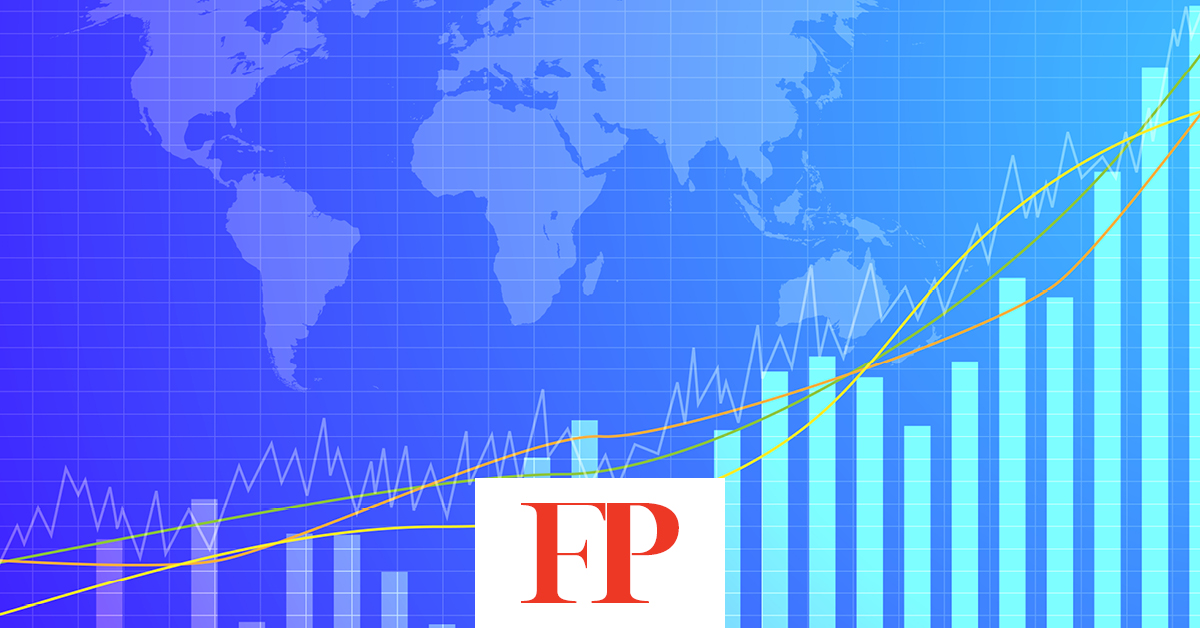
Did the nations with better digital readiness experience greater economic resilience during the COVID-19 pandemic? According to Bhaskar Chakravorti, the positive associations between advanced digital evolution and economic stability are notable but not universal.
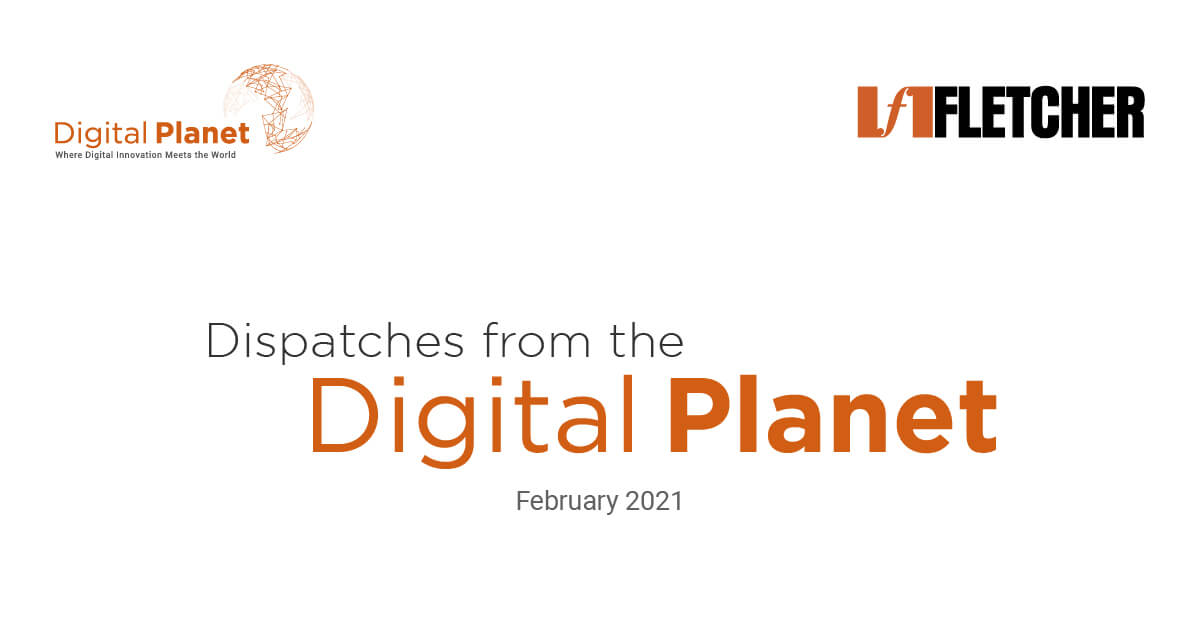
Dispatch from the Digital Planet is a monthly bulletin that talks about new updates in digital innovation across the world and their impact.

Bhaskar Chakravorti discusses how multinational companies, including Big Tech firms, are equipped to handle the vaccination effort and the privacy concerns involved with handling medical data.
Jack Dorsey’s new-found courage to silence Trump’s Twitter handle may have been helped by the reality that an ex-president, now twice impeached, who incited a mob to attack his own seat of government, may command fewer advertising dollars.
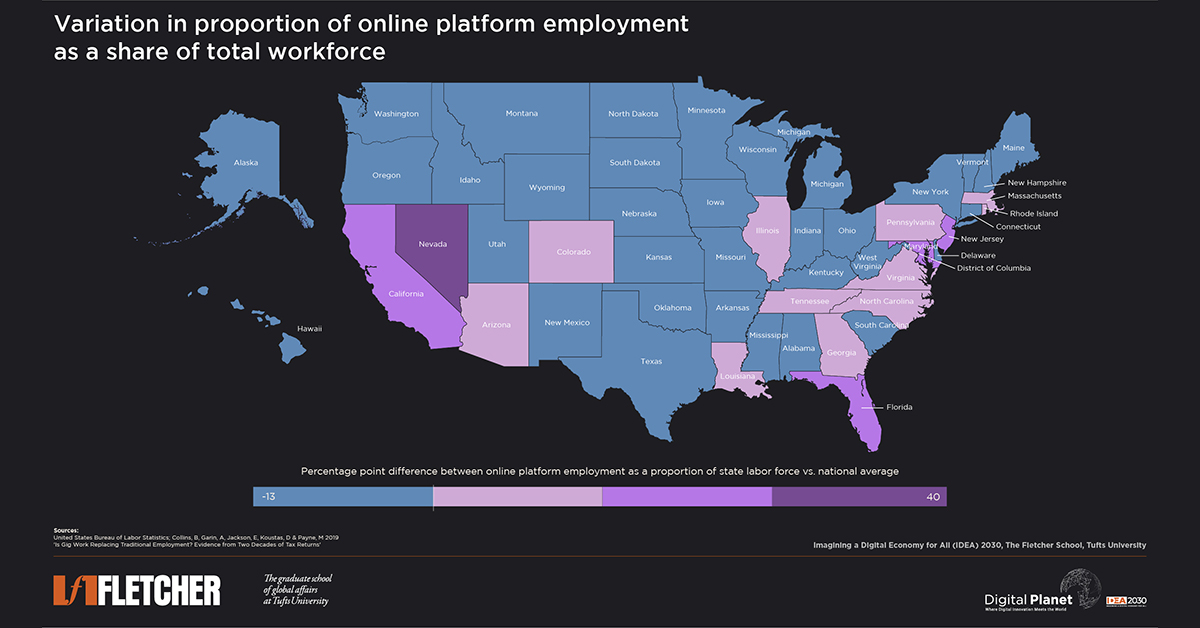
Digitally ready states thrived during the pandemic, leveraging gig workers for essential services. Yet, it revealed disparities and vulnerabilities in the gig economy.

Director of Research Ravi Shankar Chaturvedi explains the hurdles Indian Billionaire Mukesh Ambani may face in turning Jio into a global tech empire.
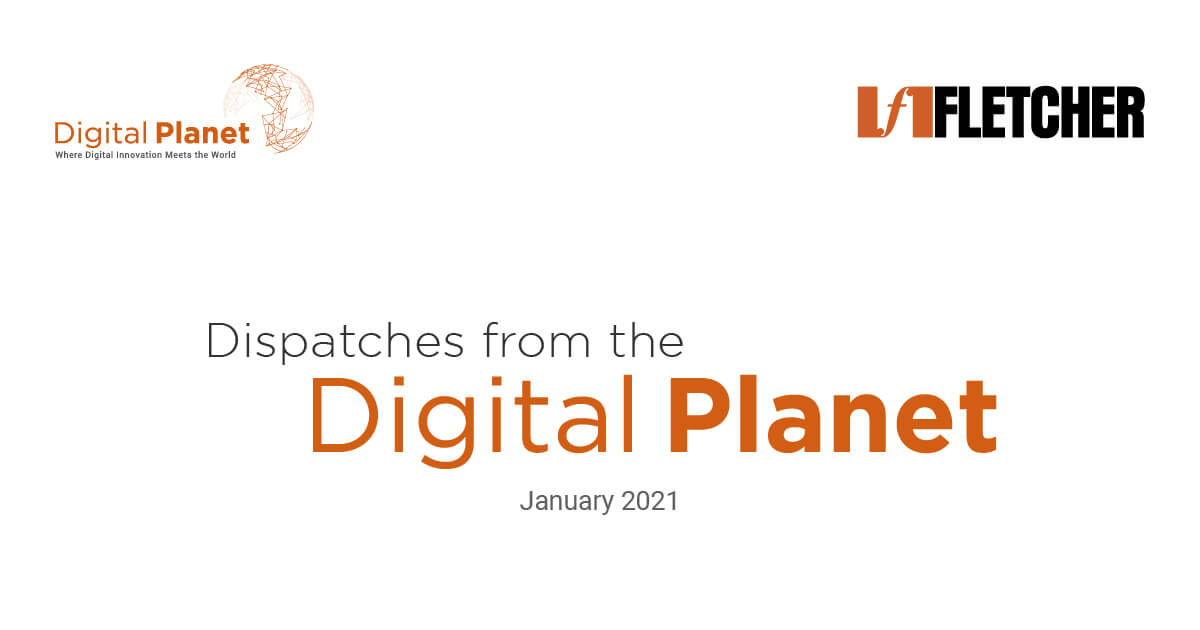
Dispatch from the Digital Planet is a monthly bulletin that talks about new updates in digital innovation across the world and their impact.

Resilience reflects digital infrastructure and citizen trust, according to Fletcher School study.

Covid-19 brought home the urgency of closing a digital divide that has left millions in the cold under lockdowns.

We Democrats soon to be in charge of Senate Committees, experts expect ferocious action on reform of Section 230 as well as antitrust.

Bhaskar Chakravorti discusses how the “Digital Divide” could impact the distribution of the COVID-19 vaccine in Massachusetts.

Bhaskar Chakravorti sits down with David Kirkpatrick to discuss and offer his proposal on tech policy for the Biden administration.

If the tech industry wants to address its longstanding issues with diversity and its ranks, tech companies may need to go to where diverse talent lives, not the other way around.

Erica Pandley writes about the correlation between the UK’s struggling economy and its transition to working from home during COVID-19, citing data from the Digital Intelligence Index (DII).

BBC Digital Planet Gareth Mitchell discusses key findings from the Digital Intelligence Index (DII) and their implications for VR/AR personal data safety and identification and sustainability. With expert commentary from Ghislaine Boddington.

An interactive research report that indexes trust in the digital economy and its evolution across 90 economies during the COVID-19 pandemic. This report features a collaborative research platform that provides data and evidence-driven actionable insights to leaders in government, business and technology.

Despite India’s and China’s economic might, these countries have far fewer remote jobs than the U.S. or Europe. That’s affecting the emerging economies’ resilience amid the pandemic. Erica Pandey sites findings from the Digital Intelligence Index in her article on Axios.
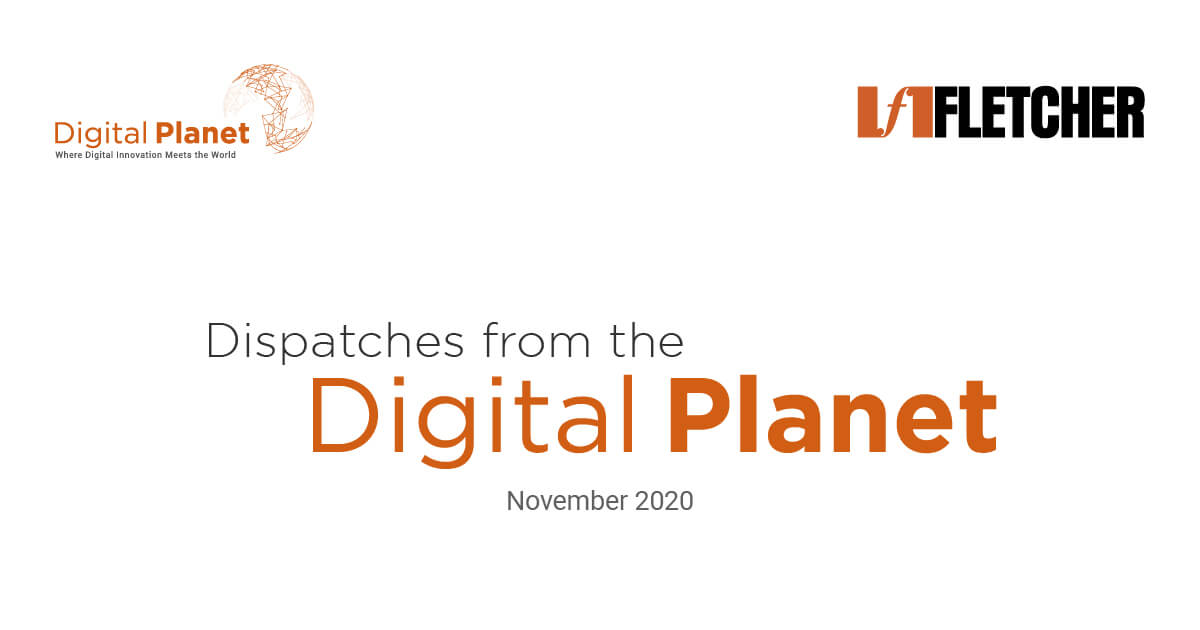
Dispatch from the Digital Planet is a monthly bulletin that talks about new updates in digital innovation across the world and their impact.

Could the 2020 election be the perfect storm for misinformation? ABC News analyzes Digital Planet’s Misinformation Index to find out.

Far from a game-changer, the case highlights how observers continue to get Big Tech wrong.
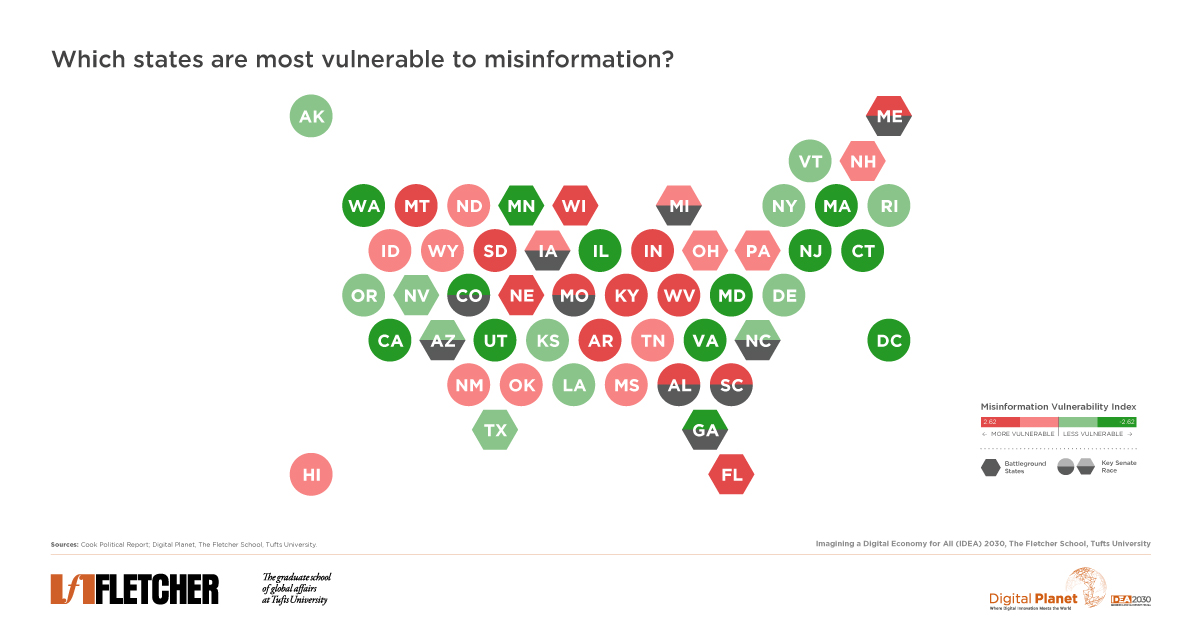
US parties race, relying on digital platforms. Public dependence on social media for news raises concerns about misinformation amid the COVID-19 pandemic, fueling a surge in digital crime.

Professor of Cybersecurity Policy Josephine Wolff writes about how phishing emails are becoming more personalized and manipulative, making it harder for people to tell the difference between real and fake messages.

Professor of Cybersecurity Policy Josephine Wolff addresses the lack of congressional oversight in regards to various threats directed at the 2020 presidential election.

Bhaskar Chakravorti describes the economic and social tolls that COVID-19 has taken on India, citing insights from Digital Planet’s Social Distance Readiness Benchmark.

Senators set to become leaders under a Democrat majority have sought to establish new antitrust law, break up tech companies.

Bhaskar Chakravorti is interviewed about the House Judiciary Subcommittee on Antitrust’s recommendations on competitive practices for Big Tech companies: Apple, Google. Facebook, and Amazon.
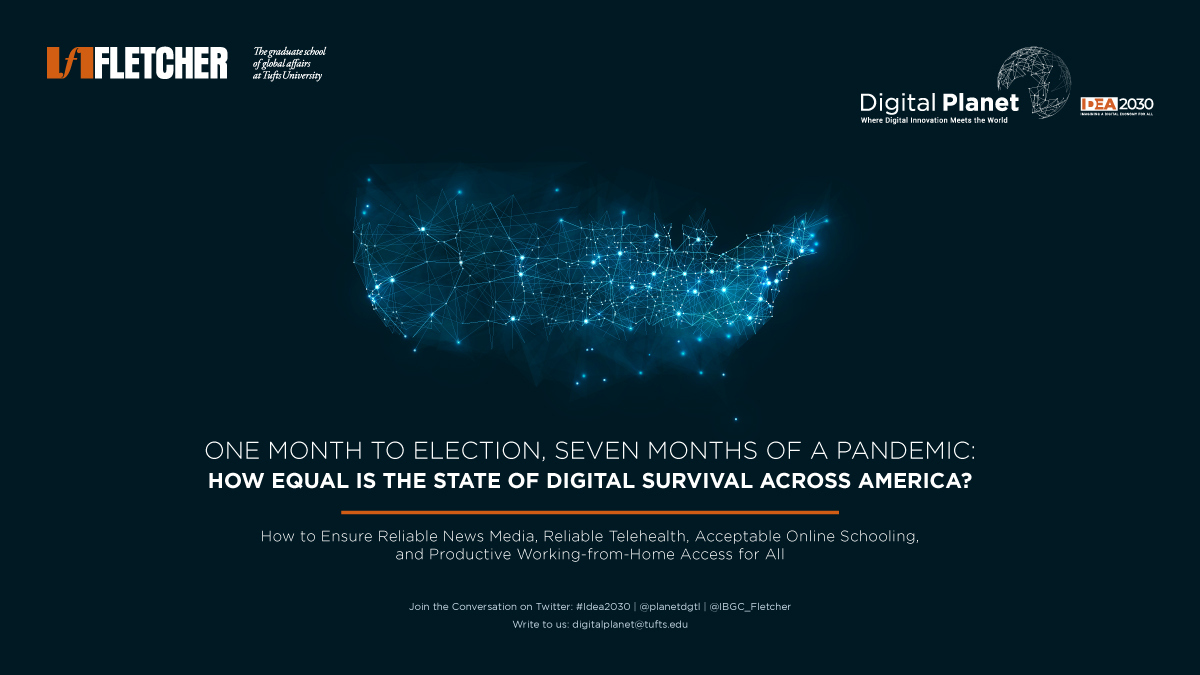
Immunity to pre-election social media misinformation, remote schooling, telehealth access, productive working-from-home: Who has it, and who doesn’t? What can be done? How can we ensure the nation’s digital and democratic health? This webinar seeks to answer these critical questions in order to get us to a more inclusive post-COVID, post-election America.
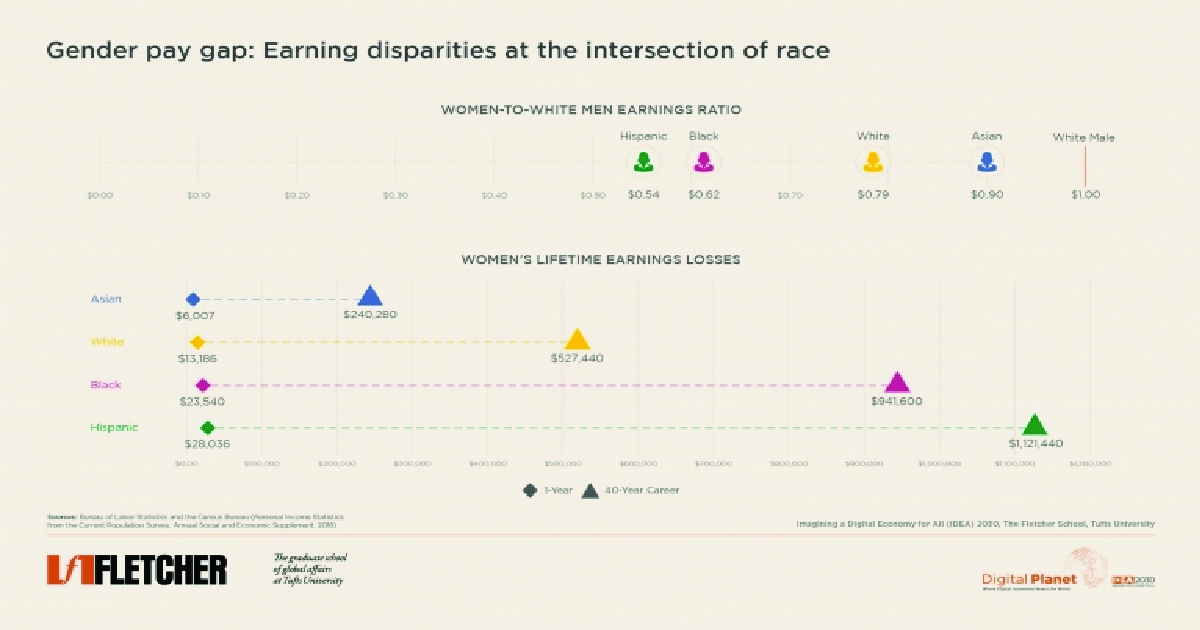
US women earn 82¢ for every dollar men make, worsened by race and education factors.

Digital Planet research on the social distance readiness of the United States is featured in a segment on CBS Moneywatch. Key insights from the report are shared.

Bhaskar Chakravorti discusses key findings from the African Leapfrog Index and how Africa can use its vast digital ecosystem to unlock unprecedented growth.
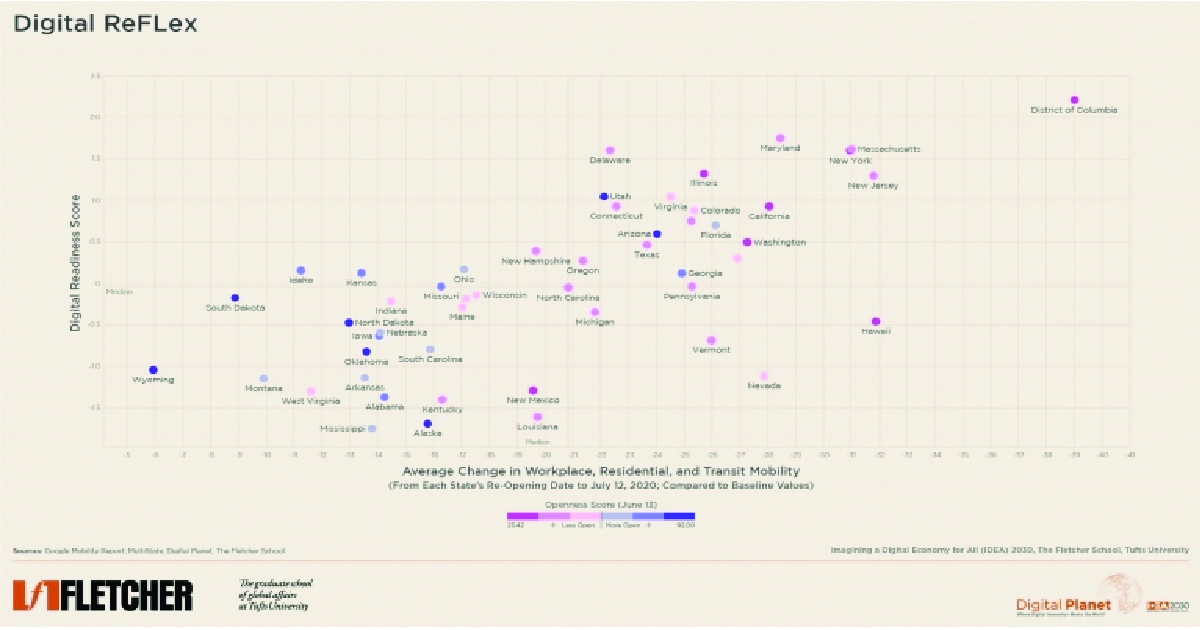
States, amid surging virus, reverse reopenings. Digital-ready states endure lockdowns better, with strict distancing measures for effective COVID-19 control.
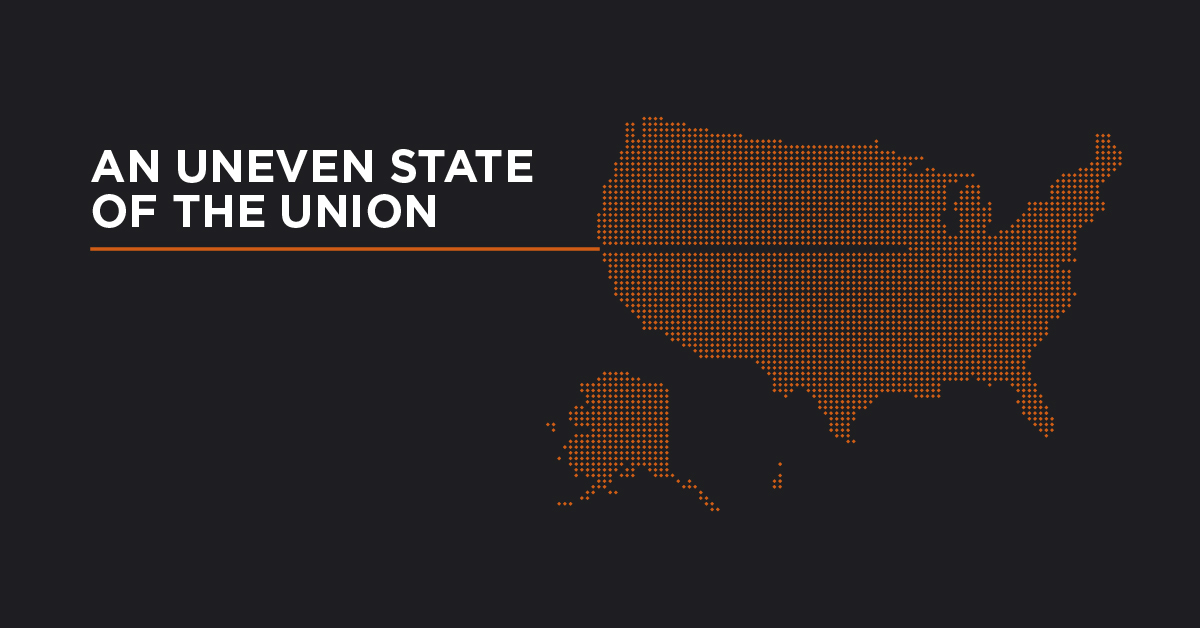
While broadband access seems to be the key factor behind America’s #DigitalDivide, there is more to it than that, namely Infrastructure, Inclusivity, Institutions, and Digital Proficiency.
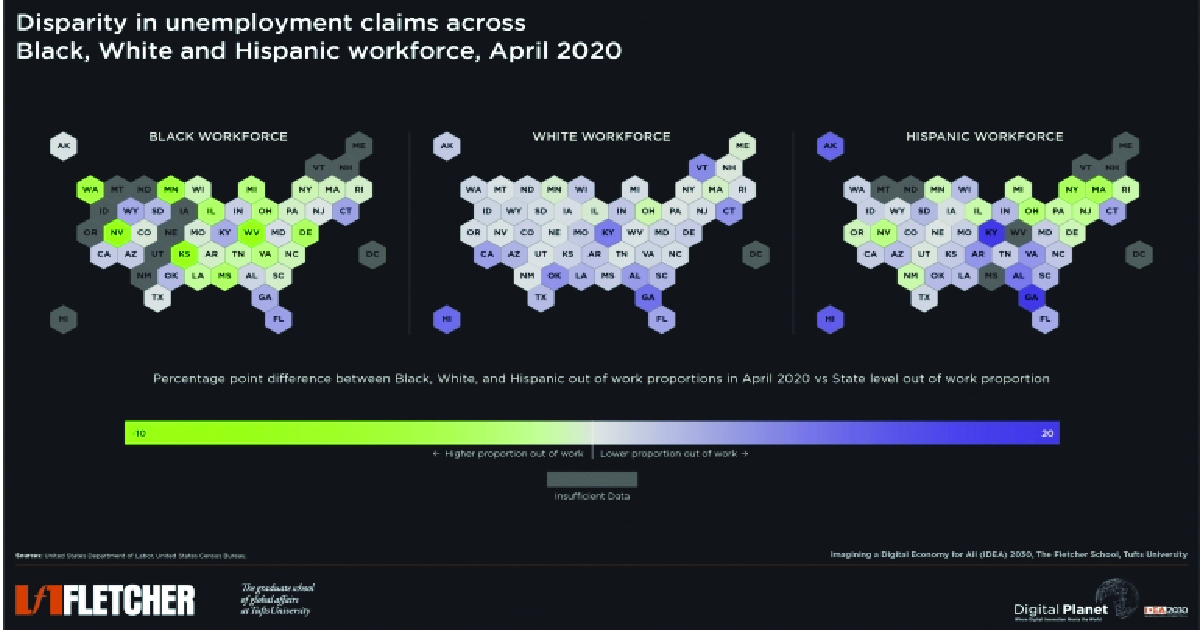
COVID-19 deepens racial disparities, particularly impacting Black communities. Addressing inequalities is crucial for an inclusive recovery.

As the government considers antitrust action against big US technology companies, a global business scholar identifies four myths that need busting first.
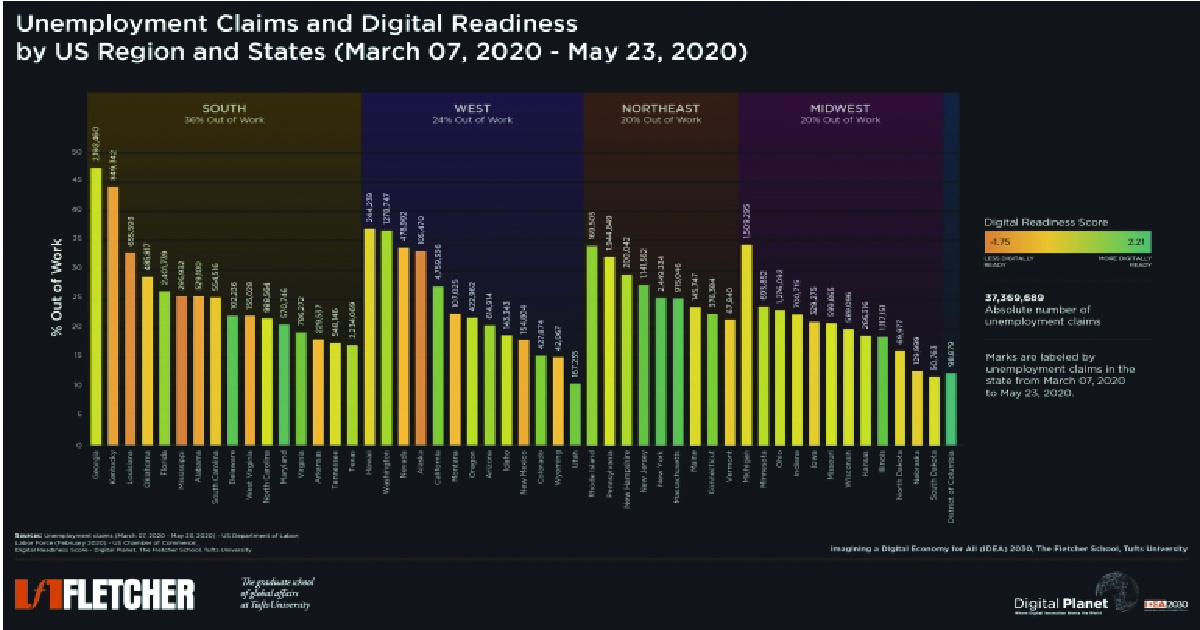
Digital platforms are crucial for business continuity during COVID-19. Washington excels in remote work, job transitions, and online unemployment filing support.
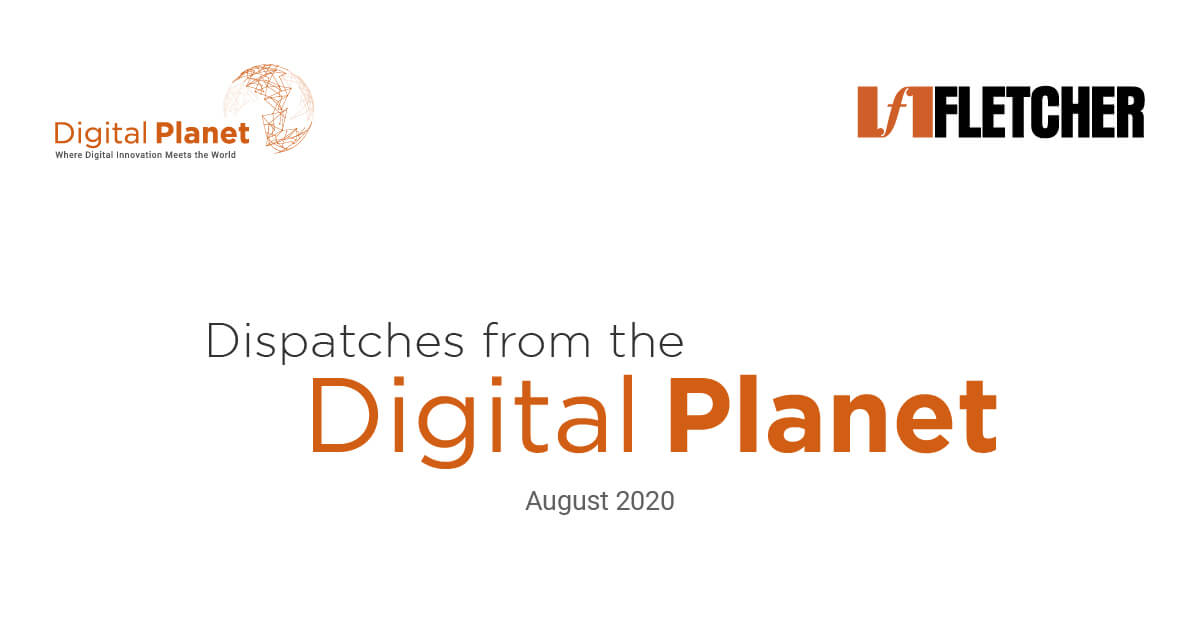
Dispatch from the Digital Planet is a monthly bulletin that talks about new updates in digital innovation across the world and their impact.
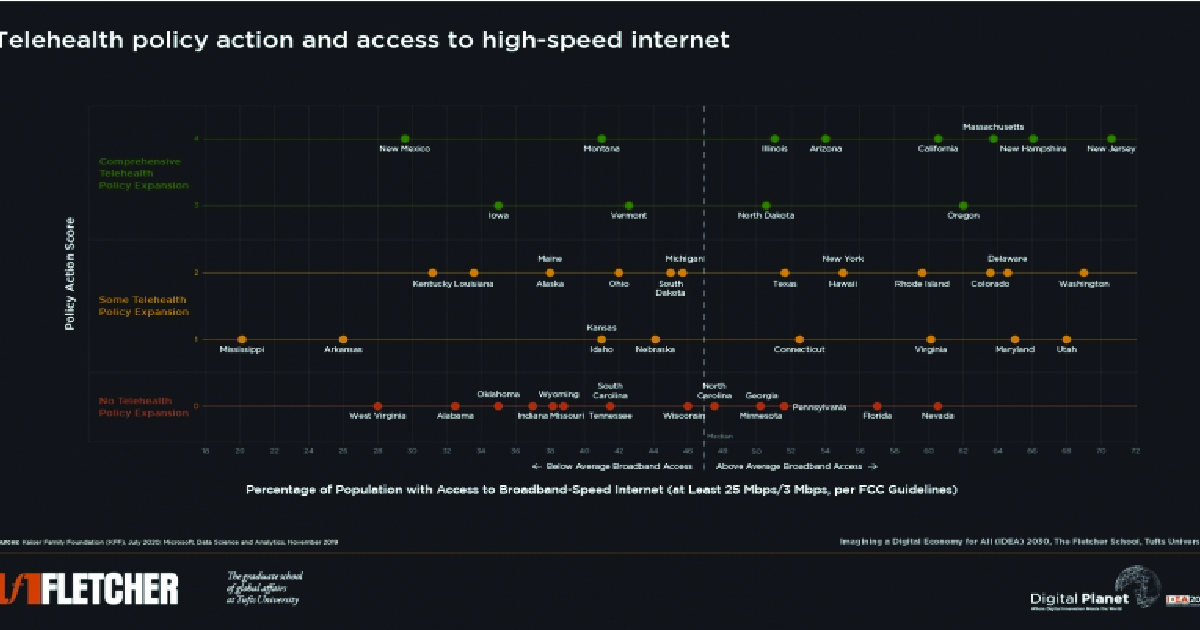
US States expanded telehealth, but 16 of them face challenges due to subpar broadband, limiting digital healthcare access.

Remote Working Can’t Last Forever: Bhaskar Chakravorti.
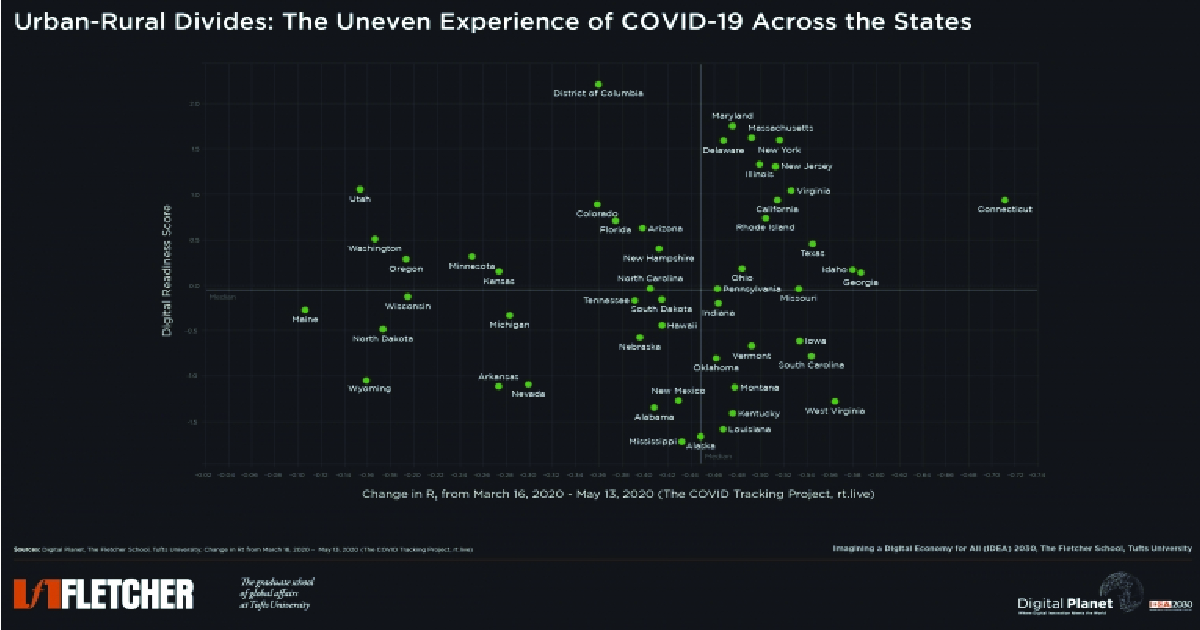
Digital Planet scored states on digital readiness and virus control (Rt change) from March 16 to May 13, 2020, focusing on remote work feasibility amid the pandemic.
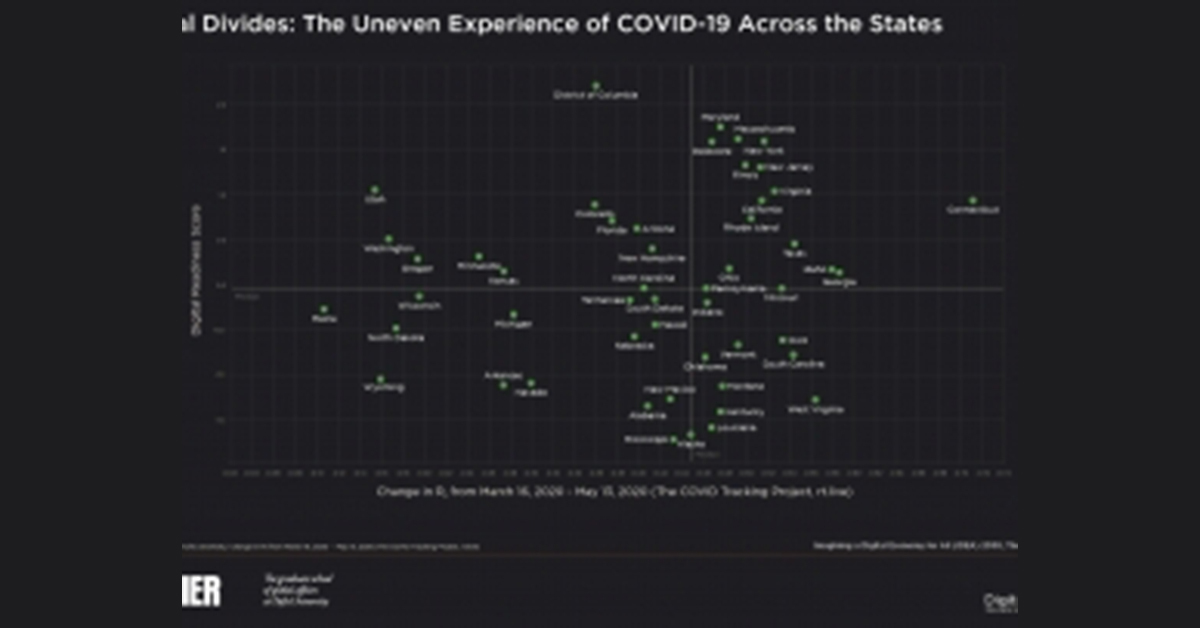
Digitally ready states implementing strict social distancing reduced COVID-19 rates. Urban areas provided more opportunities for work, education, and interaction in a socially distant world.
The Coronavirus pandemic is likely to shift the economic landscape in meaningful ways, reshaping the dominant forces in markets and economies worldwide.
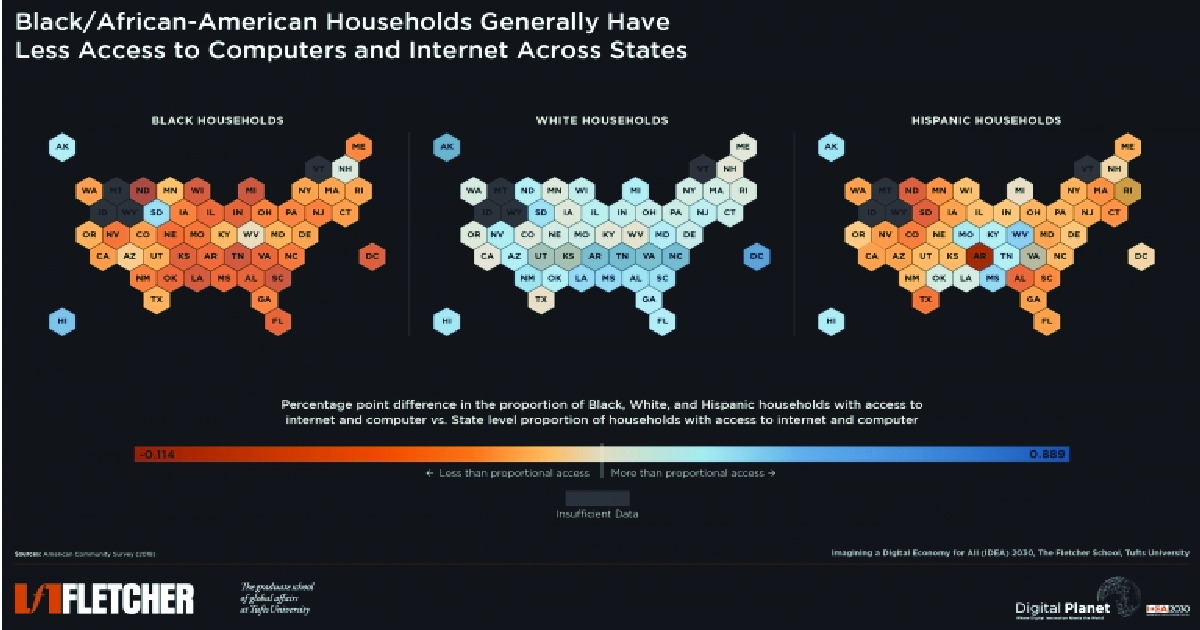
COVID-19 exposes US inequality, with certain races over-represented in less-flexible, low-tech jobs due to limited access to stable internet and computers.
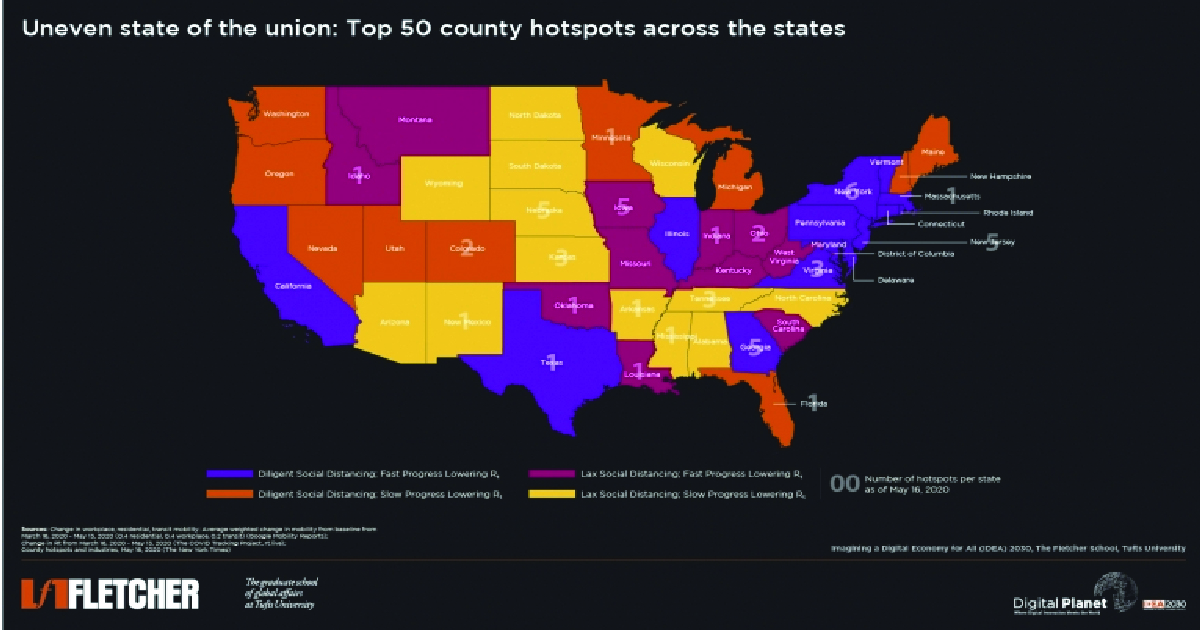
Despite 1.67M cases and nearly 100K deaths, US states vary in easing COVID-19 restrictions due to a lack of federal guidance.

COVID-19 reveals US inequality, with races over-represented in inflexible, low-tech jobs due to limited internet access.
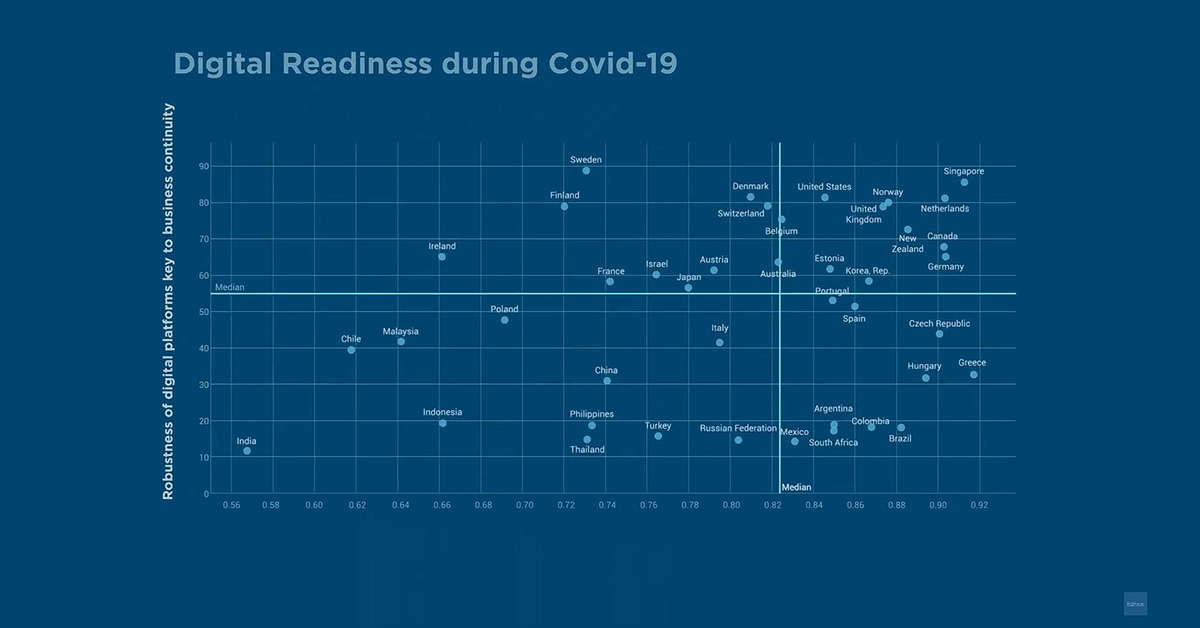
Are countries around the world prepared to keep the wheels of their economies turning during Coronavirus lockdowns? Watch the Social Distance Readiness Benchmark video summary to find out.
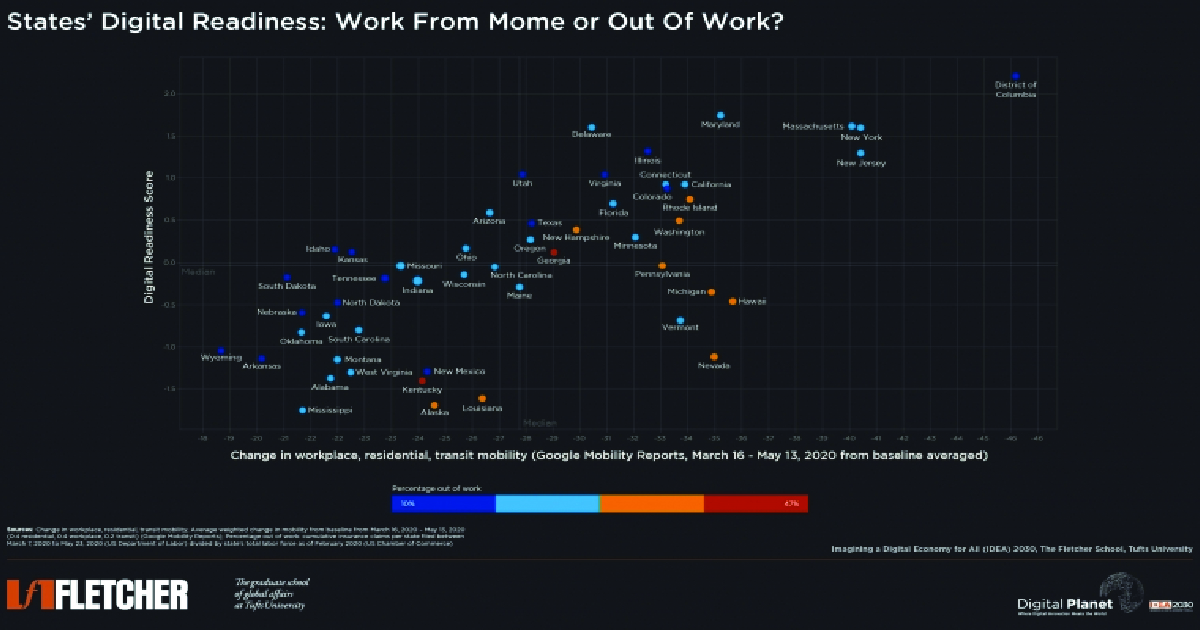
During the COVID-19 lockdown, US States that were least digitally ready and had the strictest social distancing measures experienced the highest unemployment numbers.
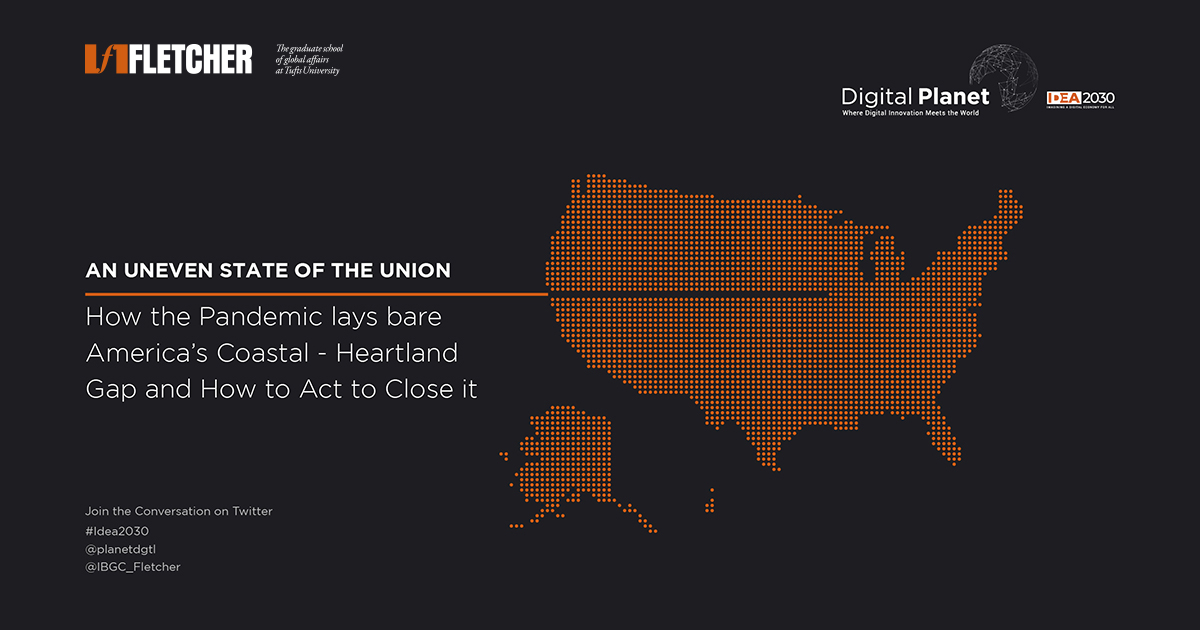
This webinar examines the key findings from the Uneven State of the Union study and how they can give policymakers and business leaders a sense of the future path of COVID-19 in the US, its ultimate economic impact, and what needs to be done next.
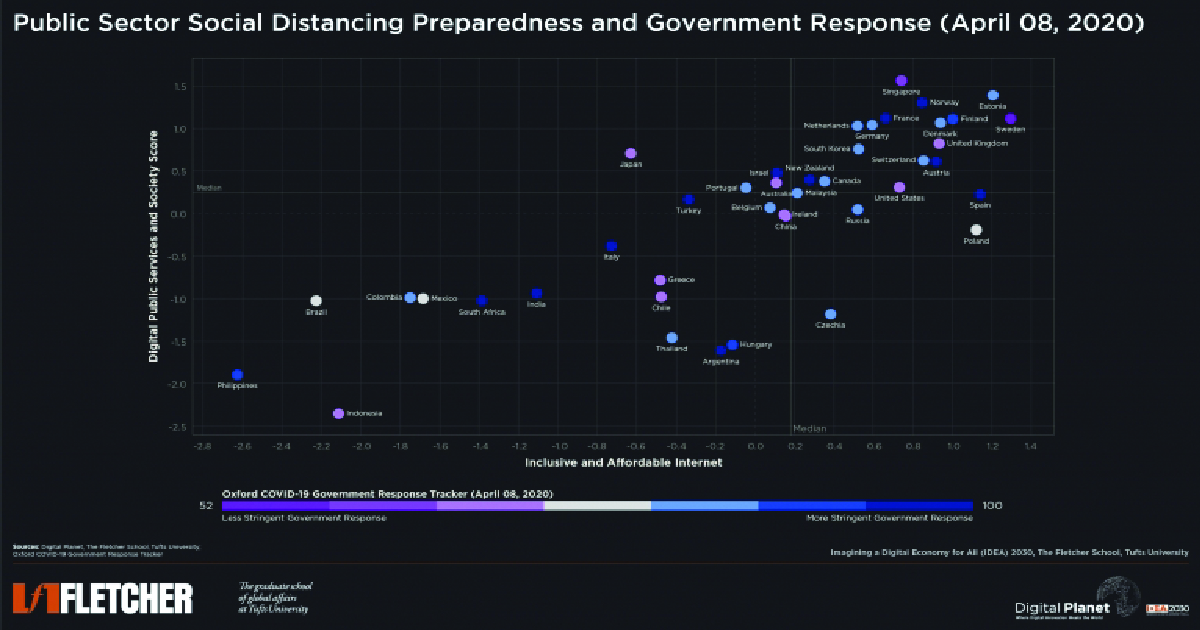
Online public services need infrastructure and affordable internet. We scored 42 countries on digital services and internet access, considering lockdown measures.

Watch the video summary to learn more about the key takeaways from the African Leapfrog Index.

Even as COVID-19 cases continue to increase in the United States, reaching over 1.67 million cases and nearly 100,000 deaths as of May 26, 2020, many states are now beginning to ease social distancing and stay-at-home mandates. Each state is taking its own unique approach to lifting stay at home orders, allowing businesses to open, and loosening social distancing regulations, due in no small part to a lack of direction from the federal government.

Online public services need infrastructure and affordable internet. We scored 42 countries on digital services and internet access, considering lockdown measures.
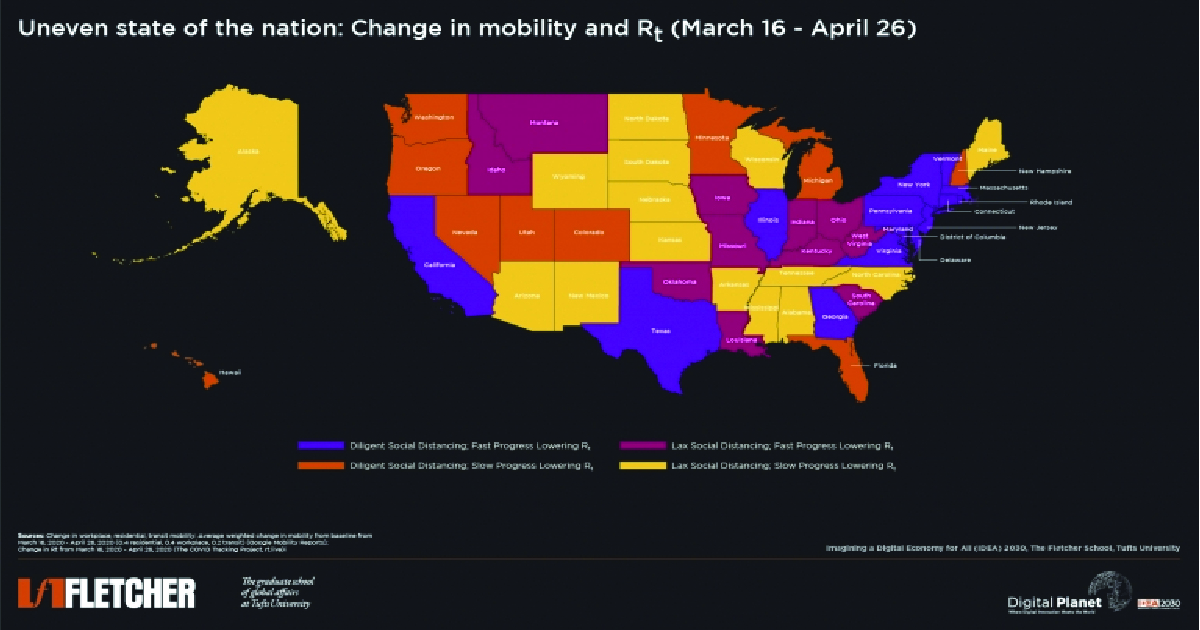
How does COVID-19 affect various US regions? Digital Planet analyzed mobility changes in relation to the virus reproduction rate.
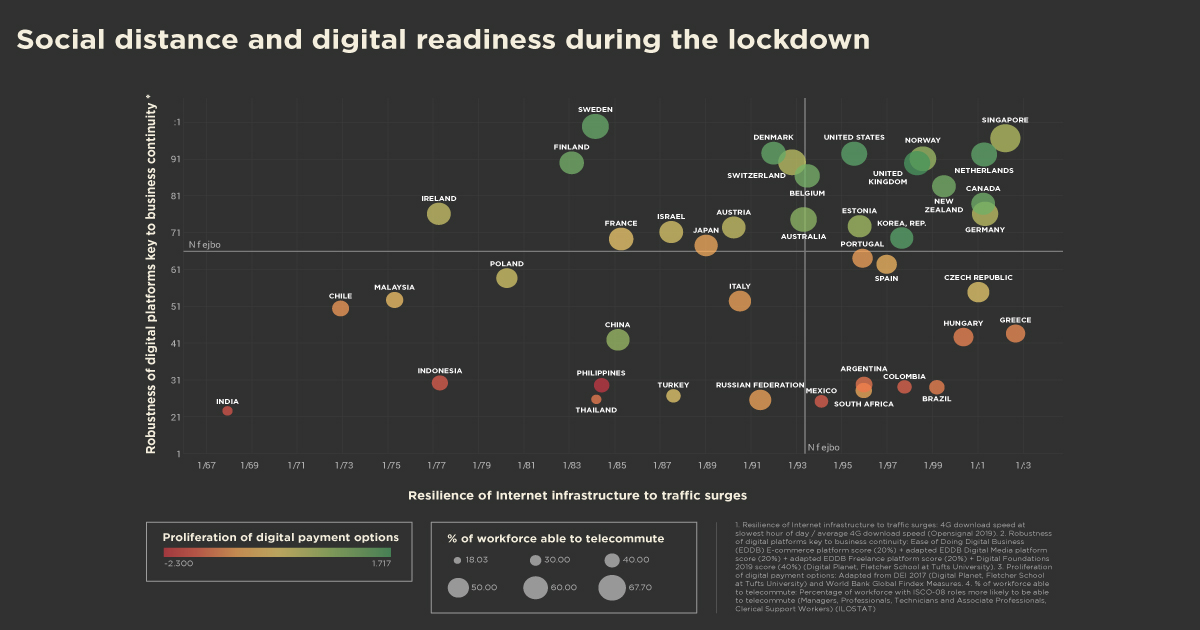
Remote work depends on digital services – telecom, e-commerce, digital media for communication. Countries need robust digital payments for transaction surges.

How emerging technologies and digital transformations can accelerate economic and societal growth in 6 African countries.
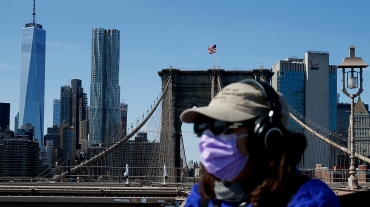
How prepared are countries to work in socially distant modes and lift lockdown orders during the COVID-19 pandemic? We examined this question by evaluating 42 countries that are significant in the global economy and have enacted social distancing measures. Some countries that were missing key data were not included. We scored the “social distance readiness” of their economies using three indices developed with our team

White House downplayed COVID deaths, pushed reopening. Inconsistent response, lacking coordination. Premature victory claims. Desperate and dysfunctional.

Rather than prepare to reopen, Bhaskar Chakravorti recommends that companies help employees settle into operating remotely.

Bhaskar Chakravorti shares insights from Digital Planet’s Social Distance Readiness Benchmark and discusses which states are practicing social distancing best.

New research from Digital Planet analyzes how prepared 42 countries were to enter and exit lockdown during COVID-19.

Tufts Now | Bhaskar Chakravorti participated in Lessons from a Pandemic, a video series run by Tufts University, and shared his insights on how to lift lockdown orders around the world.

Business Insider | Using data collected from the Social Distance Readiness report, Bhaskar Chakravorti offers insights on how countries around the world can lift lockdown orders.

Josephine Wolff explains how lawmakers are just like the millions of other people who are working from home.

Fletcher Professor Jette Steen Knudsen explains the responsibilities of Western retailers to the workers who make their garments as the coronavirus forces factories to shut down.

NBC Boston | Bhaskar Chakravorti is interviewed and expresses his thoughts on President Trump’s recommendation to inject disinfectants.

As the world raced to contain COVID-19, it effectively launched a necessary but costly experiment: Move all possible economic activity online to flatten the pandemic’s curve and save lives. But digitally recreating the economy-as-usual has its limits and the “Great Lockdown” comes with devastating economic costs.

USA Today | Bhaskar Chakravorti states guidelines to reopen states are “a bad idea motivated by Trump’s political motives rather than a measured, data-driven public health strategy.”

Al Jazeera | CPJ says Trump’s attacks have been amplified during the coronavirus crisis, a time when unimpeded journalism is crucial.
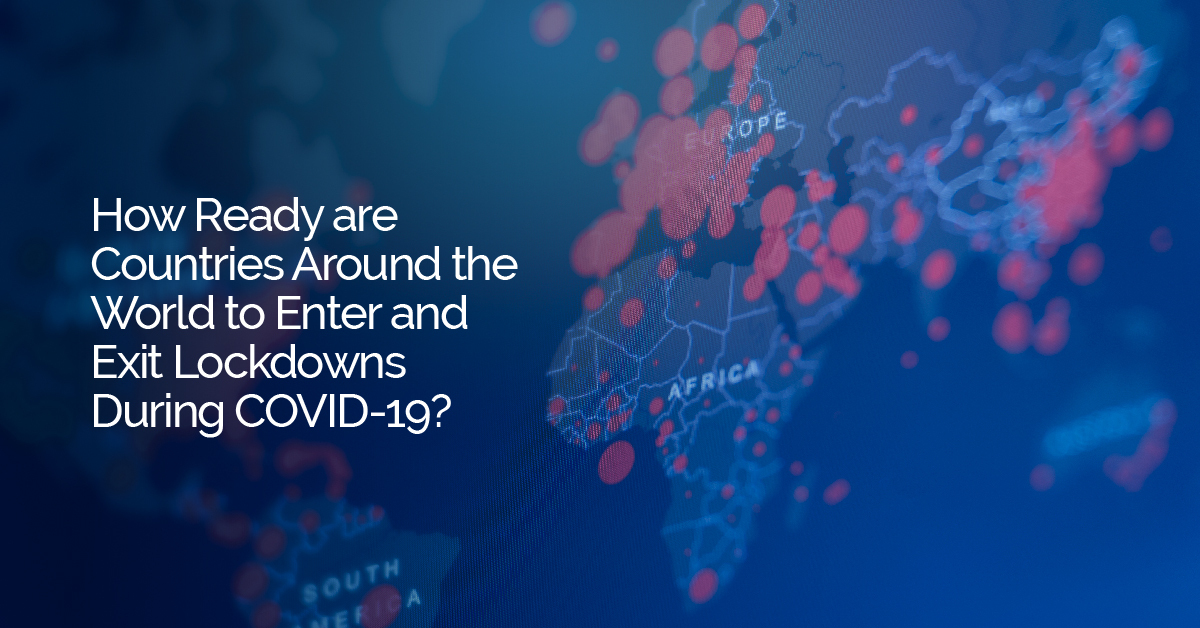
A Social Distance Readiness analysis of 42 countries measuring the robustness of their digital platforms; resilience of internet infrastructure to traffic surges; proliferation of digital payments options and percentage of workforce able to telecommute.

Fletcher Professor of Cybersecurity Policy Josephine Wolff explains that while Zoom has made some mistakes, it’s owned up to them in the middle of an unprecedented time.

CBS News examines the strain on internet infrastructure due to increased remote work, highlighting the need for robust connectivity.

An interactive research report that indexes trust in the digital economy and its evolution across 90 economies during the COVID-19 pandemic.

Bhaskar Chakravorti is interviewed about the impacts of COVID-19 and the “infodemic” on the Massachusetts and national economies.

Will our internet be able to keep up with the demands of COVID-19? Josephine Wolff expands on this topic in The New York Times.
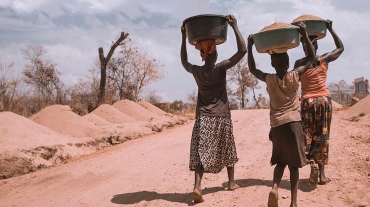
The African Leapfrog Index (ALI) is a novel framework that draws upon the primary levers that facilitate the translation of digital technologies into development and inclusive growth. The framework evaluates six African countries against a continent-wide “best-performance” benchmark to identify strengths to build upon and the opportunities to close gaps.
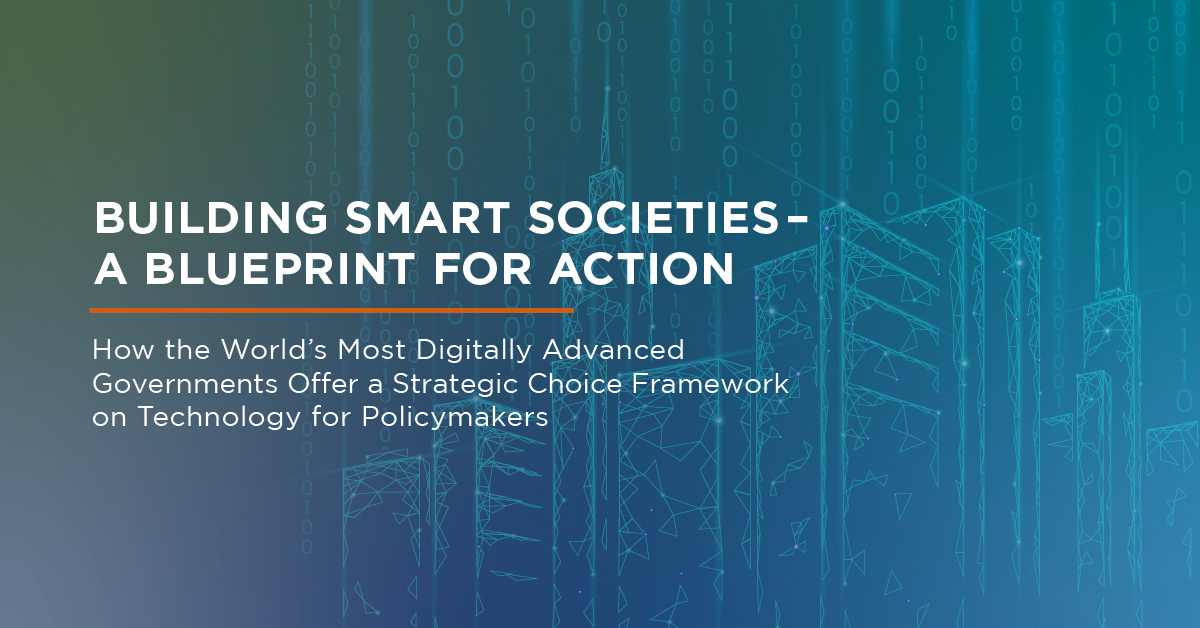
In this report, we offer a comprehensive framework that covers the essential societal outcomes and a set of benchmarks to measure the progress of any country on the journey towards a “smart society.” For countries aspiring to accelerate that journey, this report offers a dashboard that helps a country’s policymakers locate where the country currently is relative to the benchmarks and what its areas of strength and advantage are.

The rise of the coronavirus is leading to a surge of false and possibly dangerous misinformation. Where can people go to get the facts?

Rumors and untruths are spreading online — from conspiracy theories about the origin of the virus to outlandish treatments.
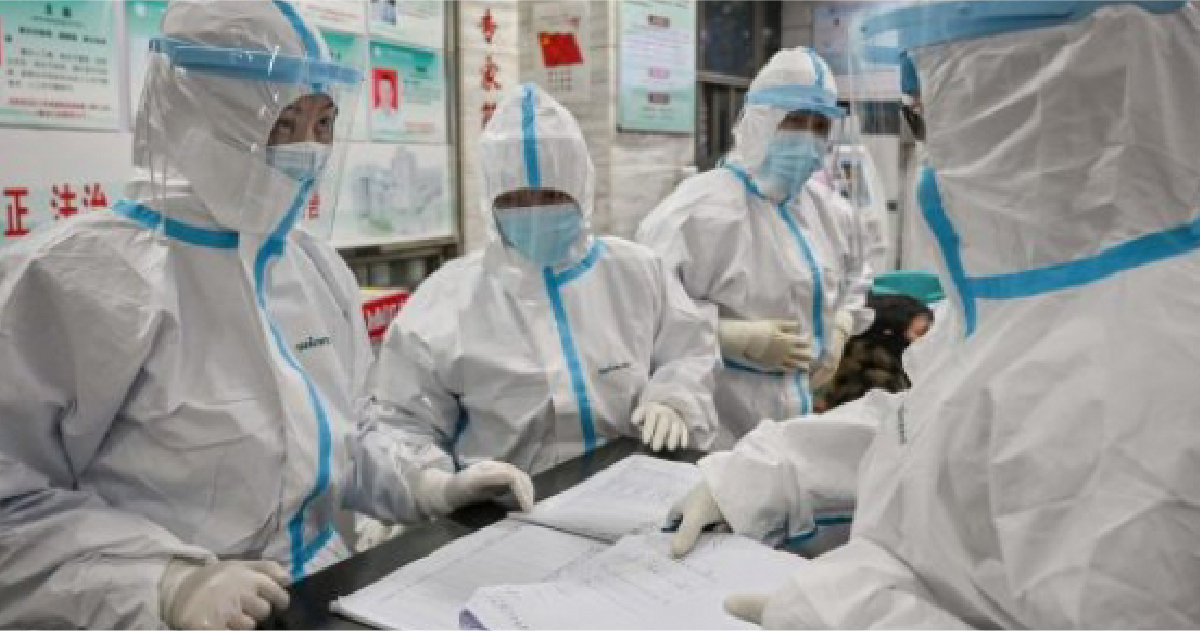
Fox News | “I would worry about countries that have single party or autocratic governments since they have a lower level of objective scrutiny from the media, including the traditional (institutionally reported) media and (bottom-up reported) social media.”
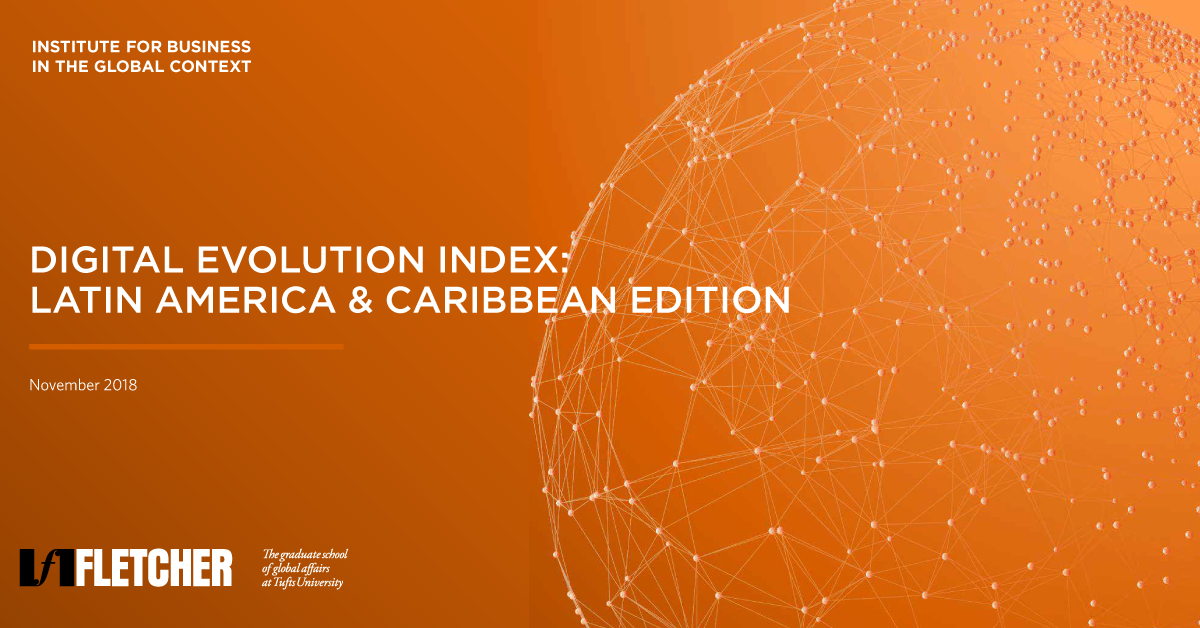
The Digital Evolution Index: Latin America and Caribbean Edition (DEI LAC) is a data-driven study of the pace of digital growth in 24 LAC countries across four key drivers of supply, demand, institutional environment, and innovation. It utilizes 99 unique indicators measured over a ten-year period (2008 – 2017) to create an overall digital evolution score and digital momentum score.
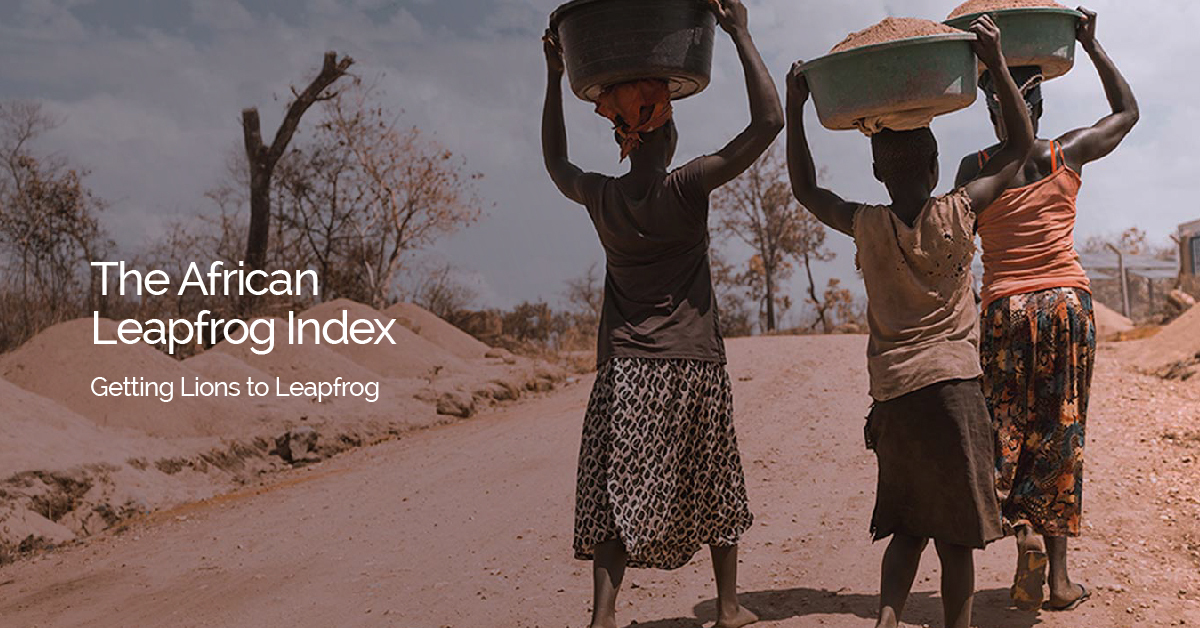
How emerging technologies and digital transformations can accelerate economic and societal growth in 6 African countries.

Digital Planet’s Ease of Doing Digital Business report ranks 42 countries on how easily digitally-enabled companies can enter, operate in, and exit their markets.
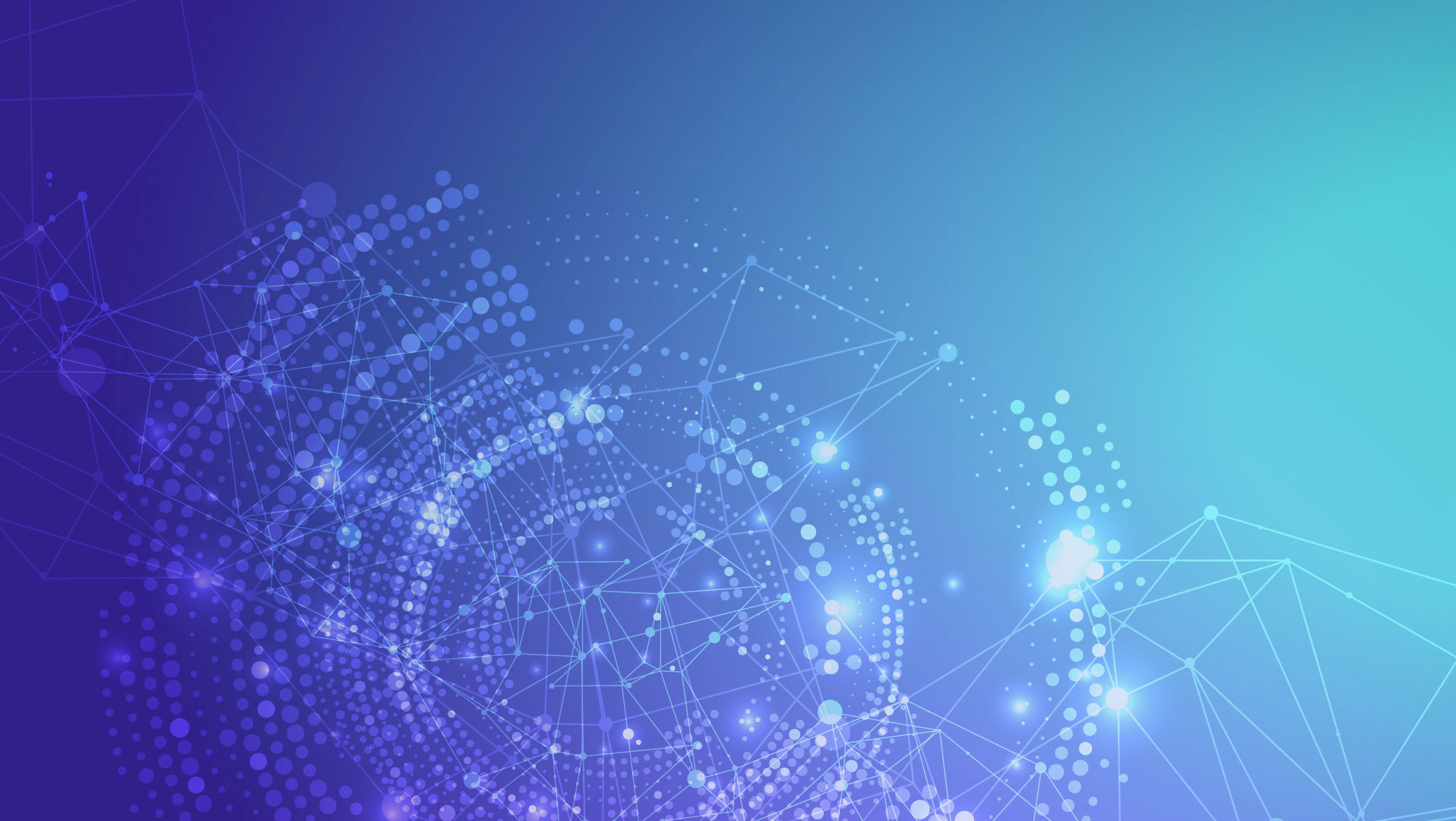
If the yardstick of effectiveness of any scorecard or ranking were tangible efforts, by those graded, to “improve bad ratings or maintain good ones,” few come even remotely close to the World Bank’s annual Doing Business survey.

Harvard Business Review | The Ease of Doing Digital Business report analyzes how easily digital companies can enter, operate-in, and exit markets around the world.

Harvard Business Review | Bhaskar Chakravorti analyzes the strengths and weaknesses of India’s government in Harvard Business Review.
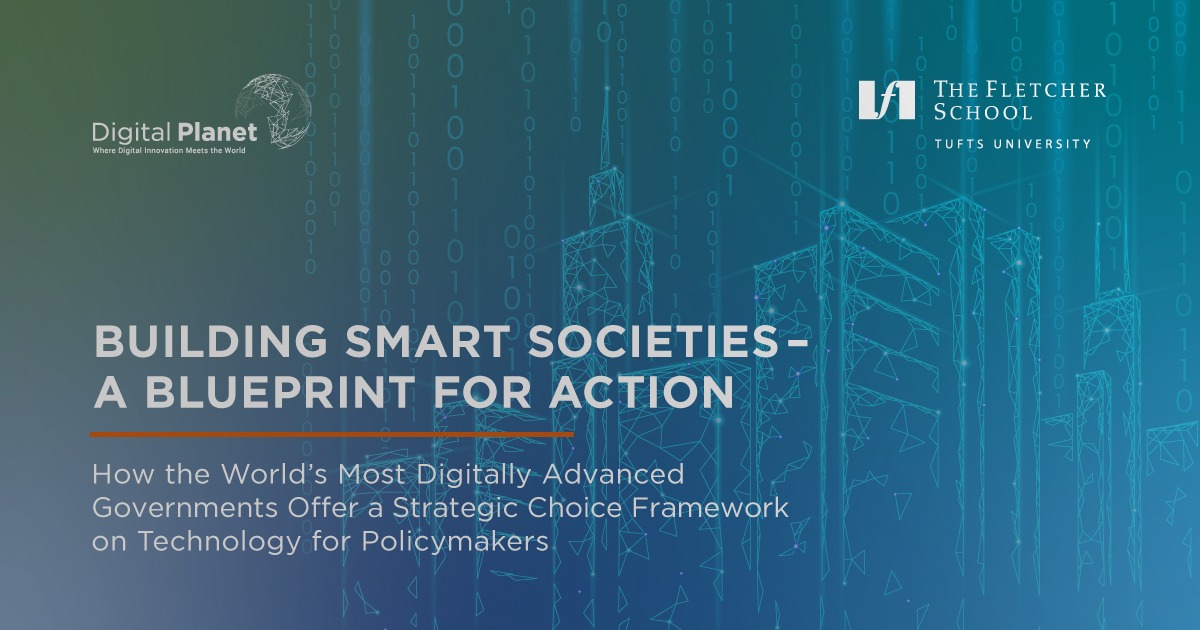
Which countries help expedite entry, growth, and exit of technology-based businesses?
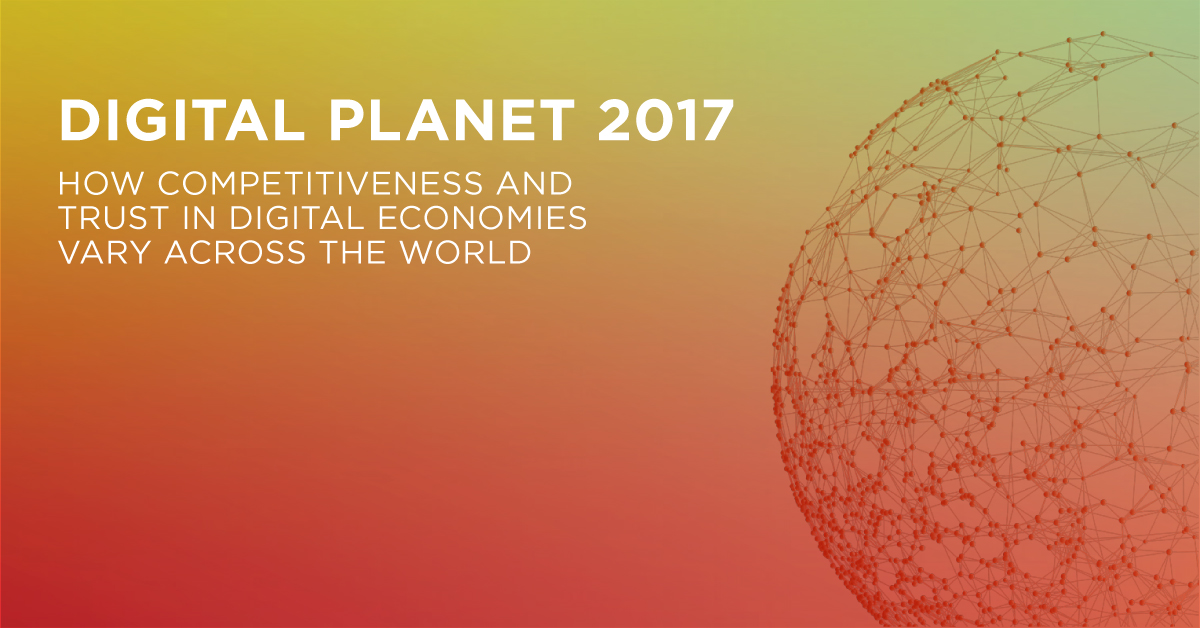
The Digital Evolution Index 2017 is a data-driven holistic evaluation of the progress of the digital economy across 60 countries, combining more than 100 different indicators across four key drivers: Supply Conditions, Demand Conditions, Institutional Environment, and Innovation and Change. The resulting framework captures both the state and rate of digital evolution and identifies implications for investment, innovation, and policy priorities.

The twin forces of globalization and digitalization have been the cause for much anticipation and anxiety lately; they have been the source of electoral outcomes, policy debates, and news headlines.

The Cost of Cash: Mexico report does more than simply estimate how much time and money Mexican consumers invest in access to cash. It also asks what groups in society are most likely to pay for access to cash with fees, transit times, and queue times; rich or poor, young or old, Northern or Southern, male or female, and rural or urban. It asks whether financial traits are equally important.
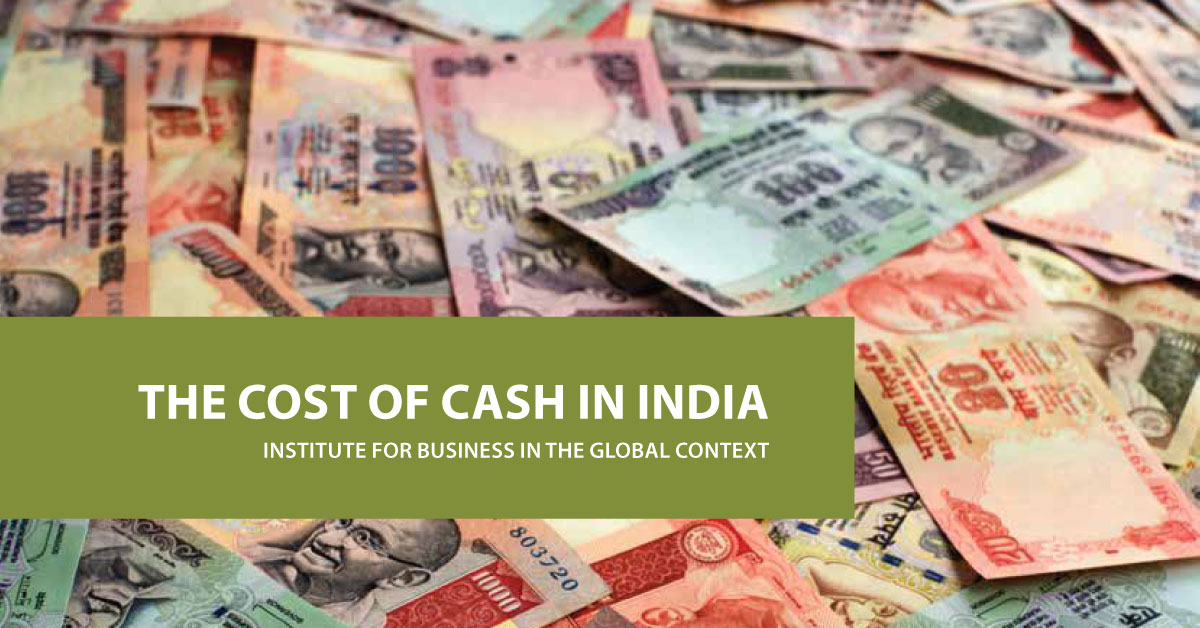
India’s economic growth propels financial revolution via modern services. Cash-heavy economy, low non-cash payments, high cash management costs analyzed. Technology, Aadhaar key for cash-to-digital shift. RBI, banks face currency operation costs. Report stresses payments’ role in inclusion, cash reduction benefits.
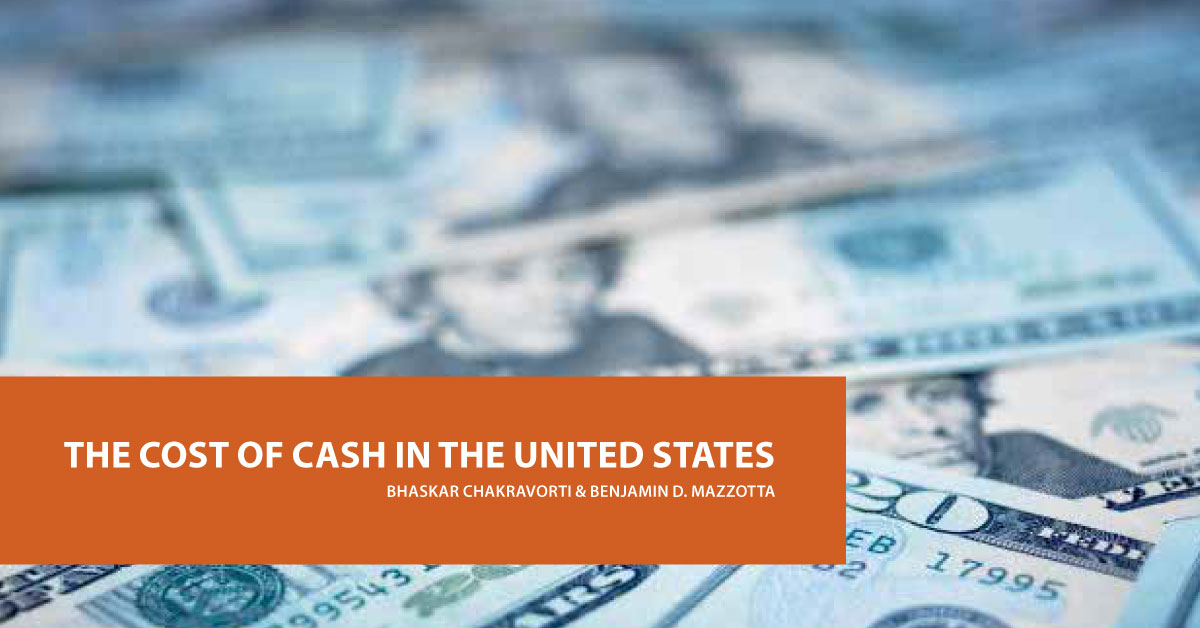
Explore the enduring relevance of cash in today’s digital world. Discover the reasons behind its persistence, including anonymity, control, and trust. Learn about the challenges faced by digital alternatives and the complex interplay of habits, regulations, and technology in the cashless revolution. Dive into a comprehensive study shedding light on the costs and benefits of cash use across various stakeholders in the American economy.